Uganda Entry & Visa Requirements


Navigating Uganda’s Red Tape: Entry visa requirements like where to get it, passport validity, vaccinations, customs, and travel restrictions.
Updated July 24, 2023
Uganda’s entry visa requirements have not changed much in the last decade, but a few changes like the application process have come up to control pandemics and make it easier for all travelers.
We all want to get out there alive a bit, get wild and stretch our minds. An African savanna is a great place for that. Open wide spaces, clean air, new cultures, and quiet noise. All we needed before the Covid pandemic hit us was a passport, a visa, an air ticket, and a few bucks, and that’s it!
A few star-gazing nights under the African sky are suitable for everyone. Now, you will have to tolerate a couple of things to have a marvelous safari trip to Uganda , like many other destinations are doing it. To keep you and everyone, including the animals , protected.
Uganda’s borders remain open to tourists and anyone visiting the country either by land or air. But most travelers need a passport and a visa to enter Uganda and we will tell you the entry visa process below.
Uganda Entry Requirements
- Covid 19: Effective March 7th, it is no longer necessary to present proof of vaccination or a negative COVID-19 PCR test certificate upon arrival. However, if you are transiting or departing, you must be mindful of the entry requirements at your final destination.
- Passport validity: To enter Uganda, it is necessary to have a valid passport for at least six months from the date of arrival.
- Visas: To obtain a visa for Uganda, you can either visit a Uganda Consulate in your country or apply for an ‘e-visa’ online.
- East African Visa (one visa for Uganda, Rwanda, & Kenya) : You can also apply for a 90-day East African Tourist Visa.
- Yellow fever certificate: You will need a Yellow Fever vaccination certificate to enter Uganda.
Uganda Visa Requirements
Nationals of most countries require a visa to enter Uganda. They must apply and pay for the Uganda entry visa in advance electronically online at https://visas.immigration.go.ug/ .
Entry visa rulings are prone to change, so all visitors must check the current situation with their travel agent or a Ugandan diplomatic mission before they travel.
The following are the requirements for Uganda entry visa:
- You must have a valid passport issued by your government. Your passport must be valid past the date of your expected departure from Uganda (6 months)
- Green card holders must provide a copy of their green card
- Duly filled Visa Application Form
- You must have an international Inoculation Certificate against Yellow Fever.
- You must obtain a Uganda Government VISA before entry into Uganda.
- It is mandatory to have the following to obtain a Uganda Government entry visa: (a) Application forms are available online. Visa Application Form (b) Submit your passport and one (1) recent passport–size photograph. (c) Pay applicable Fees, by money order or (cashier’s cheque) only. (d) In a secure envelope, enclose your passport, the one photograph, and the money order (or cashier cheque) to Uganda Mission. (e) Allow five (5) working days for your visa application to be processed for an application submitted by mail or in person.
- Applications for entry visas may be submitted by mail, in person, or by E-visa. Applications by post must be accompanied by a stamped, self-addressed USPSExpress Overnight envelope only for shipping your document(s) back to you. Any other courier service with traceable delivery methods like FedEx and DHL is recommended.
- Entry visa applications should be submitted one month before travel, at the earliest, and not later than four days before travel.
- Correct visa fee ( USD 50 for a single entry visa). All travelers should pay visa fees online.
- Letter of invitation/introduction, if traveling on business.
- Applicants may be requested to submit additional supporting documentation.
For more information on entry visa Requirements, visit the official Uganda Immigration page.
Which Country Doesn’t Require a Visa To Travel To Uganda?
Citizens of the following countries do not require visas to enter Uganda—but they should have a valid passport:
- Italy (Diplomatic Passport holders only)
- Sierra Leone
- The Solomon Islands
- St. Vincent and Grenadines
Things you must know traveling to Uganda
Valid passport.
Check well in advance that you have a valid passport and that it won’t expire within six months of the date you intend to leave Uganda. Should your passport be lost or stolen, it will generally be easier to get a replacement if you have a photocopy of the important pages.
Yellow Fever Vaccination Certificate
There is a risk of yellow fever transmission all over Uganda, all travelers entering the country have to be vaccinated to protect themselves, including travelers from the UK, USA, and Australia. You will be asked at the border or international airport for an international health certificate showing you’ve had a yellow fever shot . Fortunately, the Yellow Fever shot currently can last a lifetime, so you can do it once.
Cost of a Uganda Entry Visa
- A standard Uganda single-entry visa, valid for three months, costs USD 50 .
- Student entry visas cost USD 20. Multiple-entry visa valid for 12 months, costs USD 100 .
- 24 months visa costs USD 150 .
- 24-36-months visa costs USD 200 .
Travelers with a single-entry visa intending to leave and return to Uganda (e.g., to trekking gorillas in Rwanda or visiting nearby Kenya) may find it more useful to apply for an East African Visa (cross-border joint visa).
The East African visa allows entry into all three countries (Kenya, Uganda & Rwanda) on a single visa which costs USD 100.
If, however, you intend to spend less than seven days in Uganda before leaving again, you can purchase an inland transit visa for only USD 15.

Planning a safari trip on your own can be a headache
Here are 10 easy steps to put together a great trip
Uganda Entry Visa Extension
Immigration authorities now generally only stamp your passport for a maximum of one month upon arrival. Immigration can extend your entry visa without charge to three months at any immigration office. You’ll be charged USD 100 per day if you overstay your visa .
In Kampala , you may be asked to provide an official letter from a sponsor or the hotel where you are staying. In Jinja and Mbarara, recent reports suggest you are more likely to have your stay extended to three months without any paperwork.
Valid Driving License
If there is any possibility you’ll want to drive or hire a vehicle in Ugand a, bring a valid driving license . Your domestic (home country) driving license will suffice for a period of up to three months.
If you intend to drive in Uganda for longer, you can either obtain a Ugandan Driver’s license or (this is far cheaper and simpler) bring an international driving license with your domestic license. Rather than carrying the originals, a photocopy will suffice.
Keeping your documents safe
For security reasons, it’s advisable to detail all your important information on one sheet of paper, photocopy it, and distribute a few copies in your luggage , your money belt, and amongst relatives or friends at home.
The sort of things you want to include are your identification and address details and refund information, travel insurance policy details and 24-hour emergency contact number, passport number, details of relatives or friends to be contacted in an emergency, bank and credit card details, camera and lens serial numbers, etc.

Let the world know about your experience traveling in Uganda.
Send your story to [email protected] and we will publish it.
Entry requirements for pets
Cats and dogs must have a certificate of good health from a registered veterinarian in the area of origin, which must be issued, signed, and stamped no earlier than 10 days before arrival in Uganda. You will also need a certificate confirming the animal is free of rabies and has been inoculated as necessary.
Dogs require vaccinations against distemper, parvo-virus, rabies, hepatitis, and leptospirosis , not less than 30 days before arrival. Cats should be vaccinated against rabies and feline enteritis, not less than 30 days before arrival.
Uganda Boarder Customs
When crossing the border into Uganda, you can bring in certain items without having to pay customs duty. These include 400 cigarettes or 500g of tobacco, one bottle of spirits and wine, 2.5 liters of beer, and a 1oz bottle of perfume.
If you’re leaving Uganda and want to take home some souvenirs, there are no restrictions on what you can export. However, if you plan on taking game trophies like teeth, bones, horns, shells, claws, skin, hair, feathers, or other durable items, you’ll need to obtain an export permit.
Bringing A Drone To Uganda
If you’re bringing in a drone for safari photography , you must know that the Ministry of Defense watches them closely. Through CAA, you must fulfill a couple of requirements to operate a drone in Uganda. Read the full details in: Operating a Drone in Uganda Procedures
The Editor, Bert Baguma

Tourist Activities You Can Experience in Uganda on Safari

An Unforgettable Nature Escape at Mount Gahinga Lodge

Packing List, What To Pack for Uganda Safari

Top 6 Luxury Lodges in Bwindi Impenetrable Forest

7 Ugandan Snacks You’ve Just Got to Try

Planning a Uganda Safari in 10 Easy Steps

Uganda Wildlife Conservation Tariff Guide

Predators That Rule Uganda’s Wilderness

Discover The Various Types of Travel in Uganda

Uganda Travel Restrictions & Country Declared Ebola Free

A Solo Safari In Uganda’s North Wilderness

Lake Bunyonyi — An Adventurer’s Guide

Visit Entebbe, Uganda’s Charming Peninsula Town
This website uses cookies to ensure you get the best experience on our website. Learn more

Information on how to stay safe and healthy abroad. About us.
- Destinations
- Asia (Central)
- Asia (East)
- Australasia & Pacific
- Central America
- Europe & Russia
- Middle East
- North America
- South America & Antarctica
Uganda (Africa)
Advice for all destinations, vaccinations and malaria risk.
Review both the Vaccination and Malaria sections on this page to find out if you may need vaccines and/or a malaria risk assessment before you travel to this country.
If you think you require vaccines and/or malaria risk assessment, you should make an appointment with a travel health professional:
- How to make an appointment with a travel health professional
A travel health risk assessment is also advisable for some people, even when vaccines or malaria tablets are not required.
- Do I need a travel health risk assessment?
Risk prevention advice
Many of the health risks experienced by travellers cannot be prevented by vaccines and other measures need to be taken.
Always make sure you understand the wider risks at your destination and take precautions, including:
- food and water safety
- accident prevention
- avoiding insect bites
- preventing and treating animal bites
- respiratory hygiene
- hand hygiene
Our advice section gives detailed information on minimising specific health risks abroad:
- Travel Health Advice A-Z
Other health considerations
Make sure you have travel insurance before travel to cover healthcare abroad.
Find out if there are any restrictions you need to consider if you are travelling with medicines .
Know how to access healthcare at your destination: see the GOV.UK English speaking doctors and medical facilities: worldwide list
If you feel unwell on your return home from travelling abroad, always seek advice from a healthcare professional and let them know your travel history.
Vaccinations
- Confirm primary courses and boosters are up to date as recommended for life in Britain - including for example, seasonal flu vaccine and COVID-19 (if eligible), MMR , vaccines required for occupational risk of exposure, lifestyle risks and underlying medical conditions.
- Courses or boosters usually advised: Diphtheria; Hepatitis A; Poliomyelitis; Tetanus; Yellow Fever.
- Other vaccines to consider: Hepatitis B; Meningococcal Meningitis; Rabies; Typhoid.
- Selectively advised vaccines - only for those individuals at highest risk: Cholera.
Yellow fever vaccination certificate required for all travellers aged 1 year or over.
Notes on the diseases mentioned above
Risk is higher during floods and after natural disasters, in areas with very poor sanitation and lack of clean drinking water.
- Diphtheria : spread person to person through respiratory droplets. Risk is higher if mixing with locals in poor, overcrowded living conditions.
Risk is higher if travelling to countries where there hepatitis A is circulating in the local population, or to areas where personal hygiene and sanitation is poor.
Risk is higher for those visiting more frequently, staying longer, visiting friends and relatives, children through bites, cuts and scratches and those who may require medical treatment during travel.
- Meningococcal Meningitis : spread by droplet infection through close person to person contact. Meningococcal disease is found worldwide but epidemics may occur within this country, particularly during the dry season. Risk is higher for those mixing with locals for extended periods.
- Tetanus : spread through contamination of cuts, burns and wounds with tetanus spores. Spores are found in soil worldwide. A total of 5 doses of tetanus vaccine are recommended for life in the UK. Boosters are usually recommended in a country or situation where the correct treatment of an injury may not be readily available.
- Typhoid : spread mainly through consumption of contaminated food and drink. Risk is higher where access to adequate sanitation and safe water is limited.
- Yellow Fever : spread by the bite of an infected, day-biting mosquito. The disease is mainly found in rural areas of affected countries but outbreaks in urban areas do occur. Vaccination is usually recommended for all those who travel into risk areas. (View yellow fever risk areas here), and areas where there is an outbreak ongoing (check the 'news' section for outbreaks). In addition, certain countries may want to see proof of vaccination on an official yellow fever vaccination certificate - check above under Immunisations .
Malaria is a serious and sometimes fatal disease transmitted by mosquitoes.You cannot be vaccinated against malaria.
Malaria precautions
- Malaria risk is high throughout the year in all areas including in the main towns and cities.
- Malaria precautions are essential. Avoid mosquito bites by covering up with clothing such as long sleeves and long trousers especially after sunset, using insect repellents on exposed skin and, when necessary, sleeping under a mosquito net.
- Check with your doctor or nurse about suitable antimalarial tablets.
- See malaria map – additional information can be found by clicking on the Regional Information icon below the map.
- High risk areas: atovaquone/proguanil OR doxycycline OR mefloquine is usually advised.
- If you have been travelling in a malarious area and develop a fever seek medical attention promptly. Remember malaria can develop even up to one year after exposure.
- If travelling to an area remote from medical facilities, carrying standby emergency treatment for malaria may be considered.
Other Health Risks
Altitude and travel, schistosomiasis, polio vaccination exit recommendations.
If you are visiting this country for longer than 4 weeks, you may be advised to have a booster dose of a polio-containing vaccine if you have not had one in the past 12 months. You should carry proof of having had this vaccination. Please speak to a travel health professional to discuss.
Zika Virus Infection
This country has been categorised as having a risk of Zika (ZIKV) virus transmission.
ZIKV is mainly spread through mosquito bites. The mosquito responsible most commonly bites during daylight hours and is common in towns and cities.
The illness is usually mild but infection during pregnancy may lead to babies being born with birth defects. There is no vaccine currently available against ZIKV.
Advice for All Travellers
You should practice strict mosquito bite avoidance at all times. Do not travel without adequate travel insurance . Seek pre-travel health advice from a travel health professional 6 to 8 weeks in advance of travel.
Additional recommendations for pregnant travellers or those planning pregnancy
If you are planning pregnancy in the very near future you should consider whether you should avoid travel to this country.
- contact your GP, obstetrician or midwife for further advice, even if you have not been unwell or had any symptoms of ZIKV infection
- use barrier methods of contraception during and after travel and for the duration of your pregnancy, even in you have not been unwell or had any symptoms of ZIKV infection
- If you develop symptoms of ZIKV infection, it is recommended that you avoid becoming pregnant for a further 2 months following your recovery
- 2 months afterwards if you are female
- 3 months afterwards if you are male or if both partners travelled
These measures reduce the chance of sexual transmission of ZIKV and/or the risk of ZIKV infection in pregnancy.
For further information, see Zika virus infection page.
- 02 Sep 2024 - Polio in Uganda
- 16 Aug 2024 - Mpox in African countries
- 84 additional items in the news archive for this country
back to top
Uganda Travel Restrictions
Traveller's COVID-19 vaccination status
Travelling from the United Kingdom to Uganda
Open for vaccinated visitors
COVID-19 testing
Not required
Not required for vaccinated visitors
Restaurants
Not required in public spaces, enclosed environments and public transportation.
Ready to travel?
Find flights to uganda, find stays in uganda, explore more countries on travel restrictions map, destinations you can travel to now, netherlands, new zealand, philippines, switzerland, united arab emirates, united states, know when to go.
Sign up for email alerts as countries begin to open - choose the destinations you're interested in so you're in the know.
Can I travel to Uganda from the United Kingdom?
Most visitors from the United Kingdom, regardless of vaccination status, can enter Uganda.
Can I travel to Uganda if I am vaccinated?
Fully vaccinated visitors from the United Kingdom can enter Uganda without restrictions.
Can I travel to Uganda without being vaccinated?
Unvaccinated visitors from the United Kingdom can enter Uganda without restrictions.
Do I need a COVID test to enter Uganda?
Visitors from the United Kingdom are not required to present a negative COVID-19 PCR test or antigen result upon entering Uganda.
Can I travel to Uganda without quarantine?
Travellers from the United Kingdom are not required to quarantine.
Do I need to wear a mask in Uganda?
Mask usage in Uganda is not required in public spaces, enclosed environments and public transportation.
Are the restaurants and bars open in Uganda?
Restaurants in Uganda are open. Bars in Uganda are .
- Company History
- Mission Statement
- Philippines
- South Africa
- Afghanistan
- American Samoa
- Antigua and Barbuda
- British Virgin Islands
- Burkina Faso
- Canary Islands
- Cayman Islands
- Central African Republic
- Christmas Island
- Cocos (Keeling) Islands
- Cook Islands
- Cote d'Ivoire
- Democratic Republic of the Congo
- Dominican Republic
- Easter Island
- El Salvador
- Equatorial Guinea
- Falkland Islands
- Faroe Islands
- French Guiana
- French Polynesia
- Guinea-Bissau
- Liechtenstein
- Madeira Islands
- Marshall Islands
- Netherlands
- New Caledonia
- New Zealand
- Norfolk Island
- North Korea
- North Macedonia
- Northern Mariana Islands
- Palestinian Territories
- Papua New Guinea
- Pitcairn Islands
- Puerto Rico
- Republic of the Congo
- Saint Barthelemy
- Saint Helena
- Saint Kitts and Nevis
- Saint Lucia
- Saint Martin
- Saint Pierre-et-Miquelon
- Saint Vincent and the Grenadines
- Sao Tome and Principe
- Saudi Arabia
- Sierra Leone
- Sint Eustatius
- Solomon Islands
- South Georgia and the South Sandwich Islands
- South Korea
- South Sudan
- Switzerland
- Trinidad and Tobago
- Turkmenistan
- Turks and Caicos Islands
- U.S. Virgin Islands
- United Arab Emirates
- United Kingdom
- United States
- Wake Island
- Western Sahara
- Travel Vaccines
- Travel Health Consultations
- Travellers’ Diarrhea Kits
- Dengue Fever Prevention
- Malaria Prevention
- Chikungunya Prevention
- Zika Prevention
- Ebola Virus
- Yellow Fever
- Hepatitis A
- Japanese Encephalitis
- Hepatitis B
- Tickborne Encephalitis (TBE)
- Tetanus-Diphtheria-Pertussis
- Measles-Mumps-Rubella
- Influenza (Flu)
- Blood Tests
- Vitamin Injections
- Physician Referral Program
- London Bridge Clinic
- London – Euston Travel Clinic

Travel Vaccines and Advice for Uganda

The east African country of Uganda was called the “Pearl of Africa” by Winston Churchill. That title is unsurprising if one looks at the sheer beauty of the country.
In Uganda is the world’s longest river, the Nile, snowy mountains, and wildlife reserves. The country has a diverse culture, comprised of more than 50 local tribes, each with their own traditions and history. There’s also a lively night life, particularly in Kampala, with tonnes of parties, bars, and dance floors around.
On This Page: Do I Need Vaccines for Uganda? Do I Need a Visa or Passport for Uganda? What is the Climate Like in Uganda? How Safe is Uganda? Nile Rafting What Should I Take To Uganda? Embassy of the United Kingdom in Uganda
Do I Need Vaccines for Uganda?
Yes, some vaccines are recommended or required for Uganda. The National Travel Health Network and Centre and WHO recommend the following vaccinations for Uganda: COVID-19 , hepatitis A , hepatitis B , typhoid , cholera , yellow fever , rabies , meningitis , polio and tetanus .
See the bullets below to learn more about some of these key immunisations:
- COVID-19 – Airborne – Recommended for all travellers
- Hepatitis A – Food & Water – Recommended for most travellers to the region, especially if unvaccinated.
- Hepatitis B – Blood & Body Fluids – Recommended for travellers to most regions.
- Tetanus – Wounds or Breaks in Skin – Recommended for travelers to most regions, especially if not previously vaccinated.
- Typhoid – Food & Water – Recommended for travellers to most regions.
- Cholera – Food & Water – Areas of active cholera transmission include the districts of Amudat, Hoima, Kagadi, Kasese, Kisoro and Kyegegwa.
- Yellow Fever – Mosquito – Required if travelling from a region with yellow fever. Recommended for all travellers over 9 months of age.
- Rabies – Saliva of Infected Animals – High risk country. Vaccine recommended for long-stay travellers and those who may come in contact with animals.
- Meningitis – Airborne & Direct Contact – Located in the meningitis belt, vaccination is recommended during the dry season (Dec. – June)
- Polio – Food & Water – Considered a routine vaccination for most travel itineraries. Single adult booster recommended.
See the tables below for more information:
Malaria spreads through infected mosquitoes. Travellers should also take steps to avoid mosquito bites and take antimalarials.
Chikungunya and dengue , two other mosquito-borne diseases are also present in the region.
There is a risk of yellow fever in Uganda. All travellers over the age of nine months must be vaccinated for entry.
The NaTHNaC recommends travellers planning on visiting certain parts of Uganda during the dry season (December – June) receive a meningitis vaccine .
Visit our vaccinations page to learn more. Travel safely with Passport Health and schedule your appointment today by calling or book online now .
Do I Need a Visa or Passport for Uganda?
A visa is required to enter Uganda. eVisas valid for 90 days are available through the Ugandan governments website. Passports must have at least six months validity. Proof of yellow fever vaccination is required to enter the country. If you do not have proof of vaccination, you may be vaccinated on site, quarantined or returned to your previous location.
Sources: Embassy of Uganda and GOV.UK
What is the Climate Like in Uganda?
The equator runs through Uganda making the climate is very warm. The average annual temperature around 25 degrees. Nights can get chilly with temperatures reaching around 15 degrees.
There is a rainy season from March to May and from October to November. In November and December there is light rain.
How Safe is Uganda?
The government of the UK rates Uganda as a medium threat for terrorism. Travellers are advised to stay away from large public gatherings.
Uganda has a large amount of crime. Petty crime, such as pick-pocketing and theft are common. Travelling alone after dark is not recommended. Food and drink should also not be left unattended as there have been cases of drinks being drugged. Travellers should maintain awareness and caution when travelling.
Nile Rafting
Both experienced and novice white water rafters can come and explore the Nile River on a floating raft. There a large number of experienced companies and individuals who serve as guides on these trips. There are waterfalls and gorgeous white rapids to experience. There’s also tandem kayaking or river-boarding available.
What Should I Take To Uganda?
Here are some essential items to consider for your trip to Uganda:
- Money Belt – Due to pick-pocketing, a money belt will help keep your money and passport safe.
- Insect Spray – The climate in Uganda is hot and humid. There are plenty of insects, including mosquitoes, which can carry malaria.
- Jumper – While it’s generally very warm in Uganda, it can get chilly at night.
- Sun Cream – Uganda is on the equator and has lots of direct sunlight.
Embassy of the United Kingdom in Uganda
If you are in Uganda and have an emergency (for example, been attacked, arrested or someone has died) contact the nearest consular services. Contact the embassy before arrival if you have additional questions on entry requirements, safety concerns or are in need of assistance.
British High Commission Kampala 4 Windsor Loop, P. O. Box 7070 Kampala Uganda Telephone: +256 (0) 312 312000 Emergency Phone: 0312 312000 or +44 1908 516666 Fax: +256 (0) 414 257304 Contact Form: Click Here
If you have any questions about travelling to Uganda or are wondering which jabs you may need for your trip, schedule an appointment by calling or book online today .

- Privacy Policy
- Automatic Data Collection Statement

Travel to Uganda from UK: Requirements and Advice

Travel to Uganda from the UK is an exciting adventure that offers a blend of stunning natural landscapes, rich cultural experiences, and remarkable wildlife encounters. Whether you're planning a safari in one of Uganda's national parks, exploring its vibrant cities, or embarking on a volunteer mission, it's essential to be well-prepared.
This guide will outline the requirements and provide valuable advice to ensure a smooth and memorable journey from the UK to the captivating heart of East Africa, Uganda.
Table of Contents
Visa and entry requirements for travel to uganda from uk.
When planning your journey to Uganda, it's crucial to understand the visa and entry requirements to ensure hassle-free entry into this captivating East African country.
Types of Visa:
Uganda offers various types of visas to cater to different purposes of travel. The two most common are the Tourist visa and the Business visa.
Tourist Visa:
The Tourist visa is the go-to option for those visiting Uganda for leisure. It lets you explore the country's stunning national parks, vibrant cities, and cultural attractions.
Business Visa:
If travelling to Uganda for business purposes, consider applying for a business visa. It's essential if you plan to engage in commercial activities or attend business meetings and conferences.
Application Process:
You have two main options for obtaining a Uganda visa:
1. Electronic Visa (e-Visa):
The most convenient way to get your visa is by applying for an electronic visa online through the official Ugandan government portal. You'll need to upload a passport-size photograph, a cover letter stating the purpose of your visit, and a valid passport with at least six months of validity remaining. This process typically takes a few days.
2. Visa on Arrival:
Suppose you cannot apply for an e-Visa in advance; in that case, you can obtain a visa on arrival at Entebbe International Airport or various land border crossings. Make sure to carry your original passport and the required vaccination certificate.
Yellow Fever Vaccination:
Like many African countries, Uganda requires proof of a yellow fever vaccination to enter the country. This is crucial for public health and safety, as Uganda is in a region where yellow fever is endemic. Ensure you obtain a yellow fever certificate from an authorized vaccination centre before travelling.
Remember that visa regulations can change, so checking the most up-to-date requirements with the Ugandan embassy or consulate in your home country well before your trip is advisable. Complying with these requirements ensures a smooth entry into Uganda. It allows you to focus on enjoying this diverse country's incredible experiences.
Money Matters
When it comes to money matters for your trip from the United Kingdom to East Africa, particularly countries like Uganda, it's essential to be well-prepared. Understanding the currency, banking options, and processing times can make your financial transactions abroad much smoother.
Currency Exchange:
In East Africa, including Uganda, the local currency is often used for day-to-day transactions. The Ugandan Shilling (UGX) is the official currency. To ensure you have enough local currency, consider exchanging money before your trip, either at your local bank or currency exchange service. Alternatively, you can exchange money upon arrival at international airports or banks in Uganda.
Banking and ATMs:
Most major cities in East Africa, including those in Uganda, have a well-established banking system with ATMs widely available. Before your trip, inform your bank of your travel plans to avoid issues with your debit or credit cards abroad. Using ATMs to withdraw local currency is often the most convenient and cost-effective way to access cash during your stay.
Processing Time:
When conducting financial transactions in East Africa, be aware that processing times for international transactions, such as money transfers or credit card payments, may vary. Planning and making necessary payments well before due dates is advisable to account for any potential delays.
Additionally, inquire about foreign transaction fees and exchange rates with your bank or credit card provider to understand the costs of using your cards abroad. Some financial institutions offer international travel services that can provide you with travel-specific cards or reduced fees.
Managing money matters when travelling from the United Kingdom to East Africa, including Uganda, involves understanding the local currency, utilizing banking services and ATMs, and allowing for processing time in international transactions. Being financially prepared will enable you to enjoy your trip without unnecessary financial stress and ensure smooth financial transactions.
Packing Essentials
Packing essentials for foreign nationals, including British nationals, travelling to East Africa, such as Uganda, involves careful planning to ensure a safe and enjoyable trip. Here are some key considerations:
1. Yellow Fever Vaccination Certificate:
One of the foremost essentials for travellers to Uganda is a valid yellow fever vaccination certificate. This certificate is mandatory for entry into Uganda and serves as a vital precaution against the disease, which is endemic in the region. Ensure you have this certificate and keep it in a secure and easily accessible place during your trip.
2. Travel Documentation:
Always carry your passport, which must have at least six months of validity from your intended departure date. Also, keep a digital or physical copy of your visa and any permits required for specific activities or national parks you plan to visit.
3. Medical Facilities:
While packing, consider including a basic medical kit with band-aids, pain relievers, and any prescription medications you may need. Familiarize yourself with the locations of medical facilities and clinics at your travel destinations in case of emergencies.
4. Advance of Travel:
Inform a trusted friend or family member about your travel plans, including your itinerary, contact information, and copies of your essential documents. Having someone aware of your whereabouts can be invaluable in case of unexpected situations.
It's essential to research your trip's specific requirements and recommendations, as each country in East Africa may have unique considerations. Additionally, packing clothing suitable for the local climate, including lightweight and breathable fabrics for warm weather, is advisable. Remember to carry essentials like insect repellent, sunblock, and a reusable water bottle to stay hydrated.
By carefully packing these essentials, including your yellow fever vaccination certificate, you can confidently embark on your journey to East Africa, knowing that you're well-prepared for a memorable and safe experience in this beautiful region.
Getting Around
When travelling around East Africa, particularly by road, you must be mindful of various factors, including your travel history, infectious diseases, and health risks. Road travel can be a picturesque experience, but it comes with its own set of challenges.
Your travel history in the region is crucial. Stay informed about recent travel incidents and your chosen area's current road conditions and safety standards.
Infectious diseases can be a concern, so be aware of any prevalent health risks and ensure you have the necessary vaccinations and medications to mitigate these risks.
Road travel may expose you to various environmental factors and health risks, such as altitude changes, wildlife encounters, and unpredictable weather conditions. Pack appropriate clothing, gear, and emergency supplies to address these challenges.
Prioritize your health and safety by maintaining good hygiene practices during your journey, including regular handwashing and using hand sanitiser. Additionally, adhere to local health guidelines and specific regulations related to infectious diseases like COVID-19.
While road travel in East Africa can offer adventure and cultural exploration, it's essential to be well-informed, prepared, and cautious to ensure a safe and enjoyable journey.
Accommodation
Accommodation is a critical aspect of travel, especially for foreign travellers, including female travellers, visiting East Africa, where the Pound Sterling is often the preferred currency for payments. Whether you're in the region for family visits or business days, here are some important considerations:
1. Accommodation Options:
East Africa offers many accommodations, from luxurious hotels and resorts to budget-friendly guesthouses and hostels. Choose the type of accommodation that suits your needs and budget.
2. Minimum Stay Period:
Some accommodations may have minimum stay requirements, especially during peak seasons. It's essential to check the reservation policies and ensure they align with your travel plans.
3. Comprehensive Travel Insurance:
Consider purchasing comprehensive travel insurance that covers medical emergencies, trip cancellations, and other unforeseen events. This is particularly important for foreign travellers to mitigate unexpected expenses.
4. Travel Documents:
Always carry your travel documents, including your passport, visa, and any permits required for your visit. Ensure these documents are valid for the entire duration of your stay.
5. Currency Considerations:
Be aware that the preferred currency for payments can vary between countries in East Africa. While some may accept Pound Sterling, others may prefer local currencies. It's advisable to have some local currency on hand for convenience.
6. Travel Restrictions:
Stay updated on any travel restrictions or entry requirements imposed by the countries you plan to visit in East Africa. These regulations can change, so checking for updates before and during your trip is crucial.
7. Safety and Security:
Prioritize safety and security when selecting accommodation. Research the location and read reviews to ensure you choose a reputable and safe place to stay, especially if you're a solo female traveller.
Finding suitable accommodation for foreign travellers in East Africa involves careful planning, consideration of local currencies, adherence to travel restrictions, and ensuring your travel documents are in order. Prioritizing safety and comfort in your choice of accommodation can significantly enhance your travel experience in this diverse and captivating region.
Safety Tips
Safety is paramount when travelling, and understanding how to protect yourself from various risks is crucial. Here are some safety tips that address key concerns:
1. Mosquito Bites and Virus Transmission:
In regions where mosquito-borne diseases like malaria and dengue are prevalent, take precautions to avoid mosquito bites. Use insect repellent, wear long sleeves and pants, and consider sleeping under mosquito nets in high-risk areas. Also, consult a healthcare professional about vaccinations and medications to protect against mosquito-borne illnesses.
2. Explosive Devices and Security Measures
Stay informed about local security conditions and areas with a history of security concerns. Be vigilant in crowded places, and report any suspicious items or activities to authorities. Follow security guidelines and instructions, especially in regions with a history of conflict or terrorism.
3. Lifelong Protection through Vaccinations:
Ensure your routine vaccinations are up-to-date before travelling. Some destinations may require specific vaccinations or boosters. Research vaccination requirements and consult with a healthcare provider to ensure you are adequately protected against preventable diseases.
4. Risk of Exposure:
Be aware of potential health risks in the region you're visiting. Follow local health guidelines, such as wearing masks and practising social distancing, especially in areas with disease outbreaks. Stay updated on health advisories and government recommendations.
5. Respiratory Hygiene:
In situations where infectious diseases are a concern, practice good respiratory hygiene. Cover your mouth and nose with a tissue or elbow when coughing or sneezing. Dispose of tissues properly, wash your hands frequently with soap and water, or use hand sanitiser.
Remember that safety is a dynamic concern; staying informed about current conditions and adapting your behaviour is essential. Prioritise your well-being and those around you by following recommended safety measures and taking precautions to mitigate risks during your travels.
Cultural Etiquette
Cultural etiquette is essential to travelling, as it helps ensure respectful and positive interactions with the local population and enhances your overall travel experience. When exploring new cultures, consider the following cultural etiquette guidelines:
1. Research and Learn:
Before your trip, take the time to research and learn about the culture, customs, and traditions of the region you plan to visit. Understanding the local way of life will help you navigate social interactions with respect and sensitivity.
2. Dress Appropriately:
Respect local dress codes, especially when visiting religious sites or conservative areas. Dress modestly and cover exposed skin as required. Carry a scarf or shawl that can be used as a cover-up.
3. Greetings:
Familiarize yourself with traditional greetings in the local language. In many cultures, a warm smile and a polite greeting can go a long way in establishing a positive connection with locals.
4. Respect Local Customs and Traditions:
Pay attention to local customs, rituals, and traditions. For example, some cultures have specific hand gestures or forms of address that may differ from yours. Show respect by following these customs when appropriate.
5. Dining Etiquette:
Be mindful of dining customs, such as whether it's customary to eat with your hands or use utensils. Wait for the host to begin the meal before you start eating, and express gratitude afterwards.
6. Photography Etiquette:
Always ask for permission before taking photos of people, especially in remote or rural areas. Some cultures may find photography intrusive or offensive.
7. Avoid Sensitive Topics:
Be cautious when discussing sensitive topics such as politics, religion, or local conflicts. It's often best to listen and learn rather than express strong opinions.
8. Tipping and Gifts:
Research the local tipping practices and guidelines for giving gifts. In some cultures, tipping may not be customary, while in others, it is expected.
9. Learn Basic Phrases:
Learning a few basic phrases in the local language, such as "hello," "thank you," and "goodbye," can show respect for the local culture and make communication smoother.
10. Patience and Flexibility:
Finally, approach cultural differences with patience and an open mind. Only some things will align with your cultural norms, and that's okay. Adapt, learn, and embrace the unique aspects of the culture you are experiencing.
By practising cultural etiquette, you show respect for the local culture and foster meaningful connections with the people you meet during your travels. It enriches your journey and allows you to appreciate the diversity and richness of the world's cultures.
Travelling from the UK to Uganda is an exciting adventure filled with rich culture, stunning landscapes, and unique wildlife experiences. Understanding visa requirements, packing essentials, health precautions, and cultural etiquette is key to a smooth journey. Safety measures, including road travel awareness, enhance the overall experience. Uganda beckons with its beauty and warmth.
Can I travel to Uganda right now?
No, travelling to Uganda at the moment is not recommended due to crime, terrorism, and anti-LGBTQI+ legislation.
Do I need a Covid test to travel to Uganda?
No, there is no mandatory Covid testing on arrival in Uganda. However, it is recommended to visit a doctor at least a month before your trip to get vaccines or medicines you may need.
Do UK citizens need a visa to visit Uganda?
Yes, UK citizens need a visa to enter Uganda for tourism purposes. The visa can be applied for online through the Uganda e-visa system. It is important to note that visas will not be issued on arrival and must be obtained before travelling to Uganda.
What are the requirements to travel to Uganda?
To travel to Uganda, you typically need a valid passport, a visa (which can be obtained in advance or on arrival for many nationalities), and a yellow fever vaccination certificate due to the region's risk of yellow fever transmission.

Aparna Shiva M
Aparna is a post graduate student at Central University of Gujarat. She did her bachelor’s from Stella Maris College, Chennai. Creative writing is her forte as she mirrors herself through her poems.
Leave a Reply Cancel reply
Your email address will not be published.
Save my name, email, and website in this browser for the next time I comment.
Latest from Travel

Tourism in Nigeria in 2024: A Guide to the Best of the Country
Tourism in Nigeria has a vast potential, boasting a variety of natural attractions like rain forests,
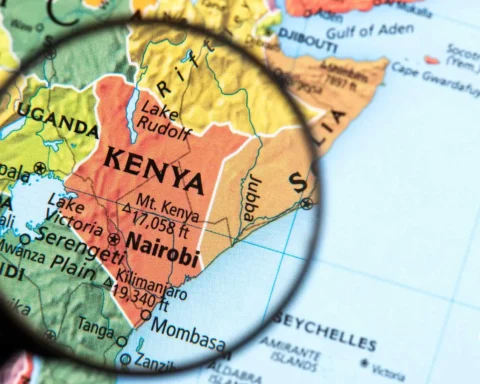
Tourism in Kenya: From Safari Land to Sustainable Growth
Tourism in Kenya portrays its diverse cultures, breathtaking landscapes, and sustainable tourism, requiring travelers to appreciate

Ecotourism in Slovenia in 2024
In 2024, ecotourism in Slovenia has reached new heights, reflecting a global trend towards sustainable travel

Business Potential in Sustainable Tourism Between India and Slovenia in 2024
Sustainable tourism between India and Slovenia seem possible after having signed an Agreement on Scientific and
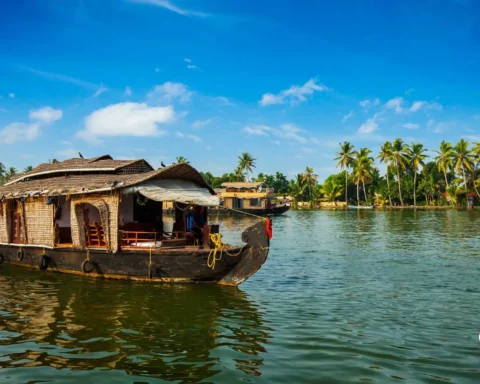
Sustainable Tourism in India in 2024
In 2024, sustainable tourism in India has emerged as a pivotal force in shaping the future

Join our exclusive insider community where we don't sugarcoat – we deliver the raw, unfiltered truth. Subscribe now to gain access to real facts straight from the source.
Thank you for your interest in joining the Global Indian Network team!
Currently, there are no open vacancies in our Design department.
At the Global Indian Network, we are always on the lookout for talented individuals who share our passion for quality journalism and storytelling. While we don't have any positions available at the moment, our team is constantly evolving, and new opportunities may arise in the future.
We encourage you to stay connected with us and watch our website for job openings updates.
You can also reach out to us here .
Currently, there are no open vacancies in our Tech department.
Currently, there are no open vacancies in our Marketing department.
Currently, there are no open vacancies in our News department.
33 Things To Know Before You Travel To Uganda in 2024

Traveling in Uganda is one big off the beaten path adventure. It won’t be anything like your standard trip in Europe or the States and although it simply requires a little more planning, traveling to Uganda is a lifetime experience. While many travelers visit Uganda for the mountain gorilla trekking, the country has so much more to offer. Some people are still in the understanding that Uganda is unsafe, but don't worry. In this Uganda travel blog you can read everything you should know before traveling to Uganda.
No country is perfect and surely not here in Eastern Africa, but its imperfections will make your Uganda trip one to remember. Planning a Uganda holiday doesn’t need to be difficult, especially now that Uganda tourism is growing rapidly and even a DIY trip is possible since the country is actually investing heavily in infrastructure.
Award winning travel photographer Kim Paffen visited Uganda in 2019 and initially wrote this blog for Traveltomtom. In 2021 Traveltomtom himself traveled to Uganda and not 1 time but 2 times: in May and in August and updated this complete Uganda travel guide with even more travel tips for Uganda.
Related: Traveltomtom Uganda Group Trip !

Also check out our ultimate Uganda itinerary for 3 weeks and guide for trekking to the mountain gorillas in Bwindi National Park .
PLEASE SUPPORT TRAVELTOMTOM by sharing the link of this article on Facebook or pin some photos on Pinterest. We would appreciated it big time! :)
1. Do you need a visa to travel to Uganda

Almost all countries will need a visa when traveling to Uganda. Check out the visa policy for Uganda here. E-visas can be purchased online through the Directorate of Citizenship and Immigration . This is the only authentic Visa Application Portal for Uganda visas and it costs $50, exclusive service fee.
Avoid other (fraudulent) portals where you’ll pay much more for your Uganda visa!
Visa on arrival
There is still the opportunity to get a visa on arrival for Uganda, but only at the land borders and kind of unofficially. Some travelers I know still managed to get a visa on arrival crossing overland from Kenya in November 2021, but officially the E-visa replaced all visa on arrivals for Uganda. So Traveltomtom recommends getting the e-visa for Uganda.
When flying to Uganda, an e-visas is mandatory. The Uganda e-visa is quick and easy, but also a little work as they require a passport-copy, recent passport-size photograph and your yellow fever vaccination certificate. Click here to apply for an e-visa for Uganda .
Traveltomtom traveled overland from Bukoba in Tanzania to Masaka in Uganda in May 2021. The whole border process took him just about 5 minutes. Just have your $50 or $100 bill ready and a visa on arrival will be fixed in just a couple minutes.
Eastern African Community single tourists visa
If you are planning to travel to Kenya and Rwanda on the same trip the Eastern African Community tourists visa is worth applying. This visa is a single entry tourist visa for these three countries, but within its borders it is multiple entry. It cost $100 and is valid for 90 days. As soon as you leave one the 3 countries, it loses its validity.
When Traveltomtom entered overland the Eastern African visa was SOLD OUT! Welcome to Africa! :)
2. Do I need vaccinations to travel to Uganda
First of all, yes you do need shots to visit Uganda as without a Yellow Fever vaccination certification you can not obtain a visa. They actually check it at the border. On top of that it is also advised you get vaccinations for DTP, Hepatitis A and malaria. Some organizations may advice you to take Typhoid, Cholera, Hepatitis B and Rabies as well.
At the moment a negative PCR test within 72 hours is also required to travel to Uganda. It does not make a difference if you are vaccinated or not, everyone needs a negative PCR test. Obviously Covis regulations change all the time, therefore I recommend you to have a look at the
BTW if you travel to Uganda you will see NO signs of covid, not in the big cities, not in the countryside. Wearing a mask is officially mandatory in some places, but hardly ever enforced nor is anyone wearing a mask (properly).
Leaving Uganda and looking to do a PCR test? Easy, easy. You can do them almost everywhere in the labs of the bigger cities as well as on the land borders. For $50 you can do one at the border of Kenya and also at the Tanzania land border and waiting time for the result is 4-6 hours. In the bigger cities you pay between 200,000 ($70) and 280,000 ($100). Waiting time is 24 hours, but in reality results are returned by whatsapp/email within 4-6 hours.
3. Is there Malaria in Uganda

There is a risk of Malaria throughout the country and therefore all Uganda travel guides will recommended you to take Malaria medication. in 2018, Traveltomtom writer Kim Paffen traveled on a 3 week itinerary around Uganda , she decided to use malaria medication. Traveltomtom however did not during his 2 weeks in Uganda in May and August. If you go to the Northern areas and for example travel to Murchison Falls, most travelers take malaria pills.
In general the most important is to protect yourself against mosquito bites and it can be as simple as wearing long pants and sleeves just before sunset. If you want a plant based medicinal protection against malaria, have a look into using Artemisia .
4. Is it safe to travel to Uganda

Uganda is generally considered to be a safe country with low crime rates. Both Kim and Traveltomtom felt completlely safe all the time! Just avoid travel by road outside major towns at night. It’s also adviced to gather the latest travel information when traveling to the South Sudan border region and Karamoja in the very north. There have some problems reported regarding the so called Kenyan Warriors, but not against tourists.
However, visiting Kidepo Valley National Park, which lies close to the border with South Sudan is totally fine. Simply use common sense at all times, take care of your belongings and be aware of your surroundings and one should be totally fine traveling in Uganda.
Since the global pandemic crime rates have gone up according to locals, but Traveltomtom visited Kampala and there was not a moment he felt uneasy or anything like that. He was told not to take out his iPhone in public too much, as they snatch phones from tourists these days.
But as you know Traveltomtom films everything for his Instagram stories and it was no issue at all. Just be smart about when and where and how! I also took my group trip to visit Kampala and even with 3 ladies it was fine. Just a little intimidating at times.
Related: 23 Best Things to do in Kampala ! Including a vlog about my first impressions of Kampala.
you may also like...

5. Can you drink the tap water in Uganda
Well let me first advice you to just not drink the tap water in Uganda! Yes, we also want to reduce single-use plastic, but most of the tap water in Uganda is just not made for drinking. At least not for Western stomachs. You just don't want to ruin you Uganda trip by being brave and trying to drink the tap water. It is not worth it. However, it is totally fine to use it to brush your teeth, wash your face and mouth, etc. Don't panic when you coincidentally swallow a little bit of the tap water in Uganda. You will be fine, no worries. Our advice is to buy bottled drinking water, that way you are also supporting local businesses.
6. Best time to travel to Uganda?

You can travel to Uganda all year! The best time for Uganda safaris is during the dry season from June to August and from December to February. In dryer conditions wildlife is easier to spot.
The high season is from June to September, but it will never really get crowded. There is no real peak season for traveling to Uganda. The most challenging months to visit Uganda are March, April and May. Because of the wet season traveling around can get a little more complicated. Roads and nature trails can be in poor conditions.
The gorilla trekking in Bwindi Impenetrable Forest can be done year round. Keep in mind that places like Lake Bunyonyi, Bwindi Impenetrable Forest, Queens National Park, etc can get cold at night even in summer due to their high altitudes.
7. Famous Quote about Uganda from Winston Churchill

in 1908 Winston Churchill spoke the following famous quote about Uganda that still resonates in Uganda nowadays:
"For magnificence, for variety of form and color, for profusion of brilliant life - bird, insect, reptile, beast - for vast scale, Uganda is truly the Pearl of Africa."
That is why you will see Welcome to the Pearl of Africa all around Uganda.
8. What is the currency in Uganda
The name of the local currency in Uganda is the Shilling. Uganda is still a cash country and card payments are not common. However most bigger hotels and lodges and even at the Uganda National Parks you can pay with either credit cards as well as USD, Euros and GBP these days. So when paying for example the $700 National Park fee for mountain gorilla trekking in Bwindi there is no need to bring stacks of Uganda cash.
Makes sure you always have Uganda Shillings (UGX) on you during your Uganda trip. Small bills like 1,000 UGX are the equivalent of just 25 dollar cents, but they are worth big smiles if you give them to locals as a tip. Try to buy local to support local people in Uganda.

9. Exchange money
You will get the best value for money when you exchange US dollar into Ugandan Shilling at a Forex office in one of the towns. You can also change money at the Entebbe Airport, but the rates are significantly lower. There are exchange offices all around the bigger towns and the Uganda tourist attractions.
Be aware of the US Dollar-UGX exchange rate. Some Ugandans are very ‘creative’ with converting their currency in for example US Dollars or Euros. As per January 2024 the official exchange rate is around: $1 USD = 3,800 UGX.
10. ATM's in Uganda
When updating this Uganda travel blog Traveltomtom added this item as he had problems withdrawing money from ATM's. Apparently his bank (Revolut) suspended all transactions with Uganda. This came as a total surprise and things got a little complicated. Luckily he had some cash on him and used another Visa credit card to withdraw money.
The Standard Chartered Bank charges the highest fees for withdrawing money: 20,000 UGX = $5.4 USD. Stanbic Bank and Absa Bank charge 11,500 UGX = $3 USD. The best ATM in Uganda for foreign bank cards is Bank of Baroda as they do NOT charge a fee for withdrawing money.
11. Buy a local sim card for Uganda
Stay connected in Uganda and buy a local sim card. Prepaid Uganda sim cards are cheap and you get about 5 GB for $5 USD. I advice travelers to get a Airtel Uganda sim card based on my own experiences. Check out my complete guide for buying a sim card in Uganda in 2024 or when you are flying to Entebbe here is a guide for buying a sim card at Entebbe Airport .
12. Facebook is available again
Because of a dispute between the Uganda Government and Facebook back in 2021 Facebook and Instagram were blocked for a long time. Luckily when visiting Uganda again in August 2021, things got partially solved as Instagram is accessible again. The Facebook block was luckily also lifted in 2023 and therefore as of 2024 you can use all social media apps without any problems.
By law it is officially forbidden to use a VPN in Uganda but it is of course very common. There is not direct need anymore since all social media apps are available again.
In those years WhatsApp was also blocked, but when you would pay an extra social media tax (OTT) the app would be accessible. Luckily, since July 2021 the social media tax is something from the past as well and the OTT is lifted by the government. You can use WhatsApp in Uganda without any problem.

13. How is the WiFi in Uganda
Let's not talk around the bush, the WiFi in Uganda is shit. Although most lodges offer free Wi-Fi in their main areas, it’s mostly not working or it is very slow. It is best to buy a Uganda prepaid sim card on arrival or buy a sim card at Entebbe Airport . Just don't rely on WiFi when traveling in Uganda.
14. What is the food like in Uganda
Local food is a mix of matoke (cooked bananas), cassave, potatoes, sweet potatoes, beans, tomatos, cabbage and a sauce made of grounded peanuts. The sauce is very similar to satay sauce from Indonesia. This is what a standard local meal looks like in Uganda and you should try it in a local restaurant. Locals love it if tourists come and try their local food. It shouldn't cost more than $2 normally.
When traveling in Uganda you will also quickly find out that there is a huge Indian influence and that is why you can find Indian food everywhere. Traveltomtom has visited India a lot and loves Indian food, but in Uganda they prepare very good Indian food too. He was pleasantly surprised. It is also very common to find chapati on the streets and in restaurants.
One more great thing to mention about Ugandan food is that there are fresh fruits everywhere. You can find it on the streets and it is CHEAP!
Are you staying in more upscale lodges, then often the meals are included. That means you will be served a 3 course meal every evening, which mostly is Western orientated dishes like pasta, steak, fish, etc.
15. What is a Ugandan Rolex?

A Rolex is not a watch, but it comes from a dish called rolled eggs. You can buy it almost everywhere along the street. I ate is several times as breakfast or lunch and found it to be very tasty. It is basically a chapati with egg. Cheap, fast and pretty good. A street food Rolex shouldn't cost more than 1,500 UGX ($0.35)
16. Do you tip in Uganda?

Tipping is normal in Uganda. Most guides expect a small tip after for example a bout tour, game drive or a nature walk. Because locals have limited access to exchange tips in a foreign currency, the best thing to do is tipping them in Ugandan Shilling.
The average monthly income in Uganda varies throughout the country and ranges between 500.000 UGX ($140 USD) and 1.000.000 UGX ($280 USD) . Tipping someone a couple dollars will give you a lot of smiles throughout your trip to Uganda. Ugandan people are super friendly, especially the ones in the tourism business and those who speak English. I am sure you gonna see a lot of big smiles leaving a couple dollars behind as a tip.
17. How much are the National Park fees in Uganda in 2024

The Uganda Wildlife Authority (UWA) has set fixed fees for visiting national parks in Uganda. Park entrance fees differ a little per National Park but most of the famous tourists spots in Uganda are around $40 for tourists. Some lesser known parks charge $35 and some small reserves only $10 for foreign non-residents (FNR). Be aware that National Park fees in Uganda are per 24 hours. That means you can be creative with the park fees when you schedule it right.
Click here to download the latest National Park Fees in Uganda as a PDF directly from the Uganda Wildlife Authority website. For vehicles you pay an additional national park fee. The national park fees for cars are a single payment so you don't pay per day. For the car you pay another 30,000 UGX.

Example: you visit Uganda with your partner and visit 4 of the most popular National Parks all for 2 days then expect to pay the following national park fees: 4 * 2 * 2 * $40 = $640 in national park fees.
On top of that you would have to pay for the vehicle: 4 * $8 = $32. In total you then pay $672 national park fees. It may sound a lot but traveling in Uganda is so worth it.
18. How much do excursions cost in Uganda

When traveling in Uganda you will find out that things to do in Uganda are NOT cheap. I was surprised that white water rafting in Jinja on the Nile River costs somewhere between $80 and $140 USD depending on your negotiation skills. It is a full day trip, but still... I just told you what the average income per month is in Uganda.
Excursion prices vary enormously, but to give you an idea here are some prices for activities that I found through the Uganda Wildlife Authority website .
19. Uganda tourism is expensive
In case you didn't know yet, traveling in Africa is expensive and Uganda is no exception. If you eat local, sleep local and travel local then you can travel Africa on a budget. But as soon as you want to see some of the best places to visit in Uganda, things get a lot more expensive.
In all honesty some travel experiences in Uganda are very expensive! Traveltomtom has traveled to more than 110 countries and especially on his overland trip in Africa he found Uganda to be one of the more expensive countries. For example a 3d/2n trip to Murchison Falls from Entebbe was $400 and that during the global pandemic. Bargaining about these trip prices is not easy either. It is the National Park fees, the tour operators, the local guides, the transportation, etc. that make these tours in Uganda so expensive.
20. Travel Uganda on a budget

Can you visit Uganda on a budget? Yes you can! Traveltomtom did a guided tour to the gorillas trekking in Bwindi National Park and safaris in Mburo National Park, but mainly traveled overland for most part of his Uganda trip. Local busses are cheap and the more local you go, the cheaper it becomes. Of course it also becomes less comfortable and it will take much more time
A 2-3 hour bus ride should not cost more than $5. There are busses in every direction. Big coaches are pretty comfortable but you could also negotiate to take the front seat in one of the smaller vans called Matatus and pay for 2 seats. Traveltomtom always bought the driver and his helper a drink or some snacks, it is a couple cents, but it makes your trip much more comfortable.
When visiting National Parks try to hitch a ride with some other tourists. You will still have to pay the national park fees, but it is a great way to save on guided safaris. Visiting the mountain gorillas there is no other way then paying for permit that includes a guided trekking.
However some places to visit in Uganda are free, like the equator sign! :)
21. Boda Boda's in Uganda

Traveltomtom named Uganda the Vietnam of Africa. If you have ever visited Vietnam then you know what he means. Motorbikes are the main mode of transportation for local people in Uganda, not for tourists.However, there are motorbikes everywhere and Traveltomtom made great use of that. Big parts of his overland trip in Uganda he also used boda boda's.
For example a Boda Boda from Entebbe to Kampala is about 50 minutes and should not cost more than 40,000 UGX, but you can easily negotiate it down to 30,000 UGX. Traveltomtom also traveled by Boda Boda from Kampala to Jinja for 80,000, which was a 2,5h trip. If you are up for an adventure then traveling by motorbike in Uganda is pretty wild!
22. There is Uber and Bolt in Uganda
Looking for a safe way to travel then surely recommend you to use one of the taxi apps. The most common one to Western tourists is of course Uber, but you can also use Bolt in Uganda. It is the exact same thing. Of course if you go off the beaten path in Uganda, don't expect to find an Uber or Blot, it is limited to the bigger cities only.
When looking for food delivery apps then download the Glovo app. There is no Uber Eats in Uganda, but Glovo works fine. However, it is very limited to Kampala mostly. Glovo can do grocery shopping for you or deliver you stuff from the pharmacy.
23. When and where to buy Chimpanzee and Gorilla trekking permits?

Secure your gorilla or chimp trekking permits prior to arrival to avoid disappointment! The permits are issued by UWA that markets them through Uganda Tour Operators to the public. Therefor it’s best to book your trekking permit (or a complete trekking tour) with a tour operator that is a member of the Association of Uganda Tour Operators. The mountain gorilla trekking permits cost $700 in 2024 for foreign non-residents.
You can obtain and pay the Gorilla trekking permit directly through the Uganda Wildlife Authority website .

I advise you to apply for a permit 6 months prior to the date you want to trek. Permits from June-August and December and February tend to sell out quickly. Last minute bookings may be possible during low season. For more info read my complete gorilla trekking blog , which is also updated for 2024.
Traveltomtom did the Gorilla trekking 2 times in 2021: in May and August.
24. Electricity plugs in Uganda
Few areas outside the cities actually have electricity. Most of the lodges use solar energy or generators, which means there is only power at certain times of the day and electricity plugs are limited. Because of that, it isn’t always possible to charge all your devices in your room. In some places you will be able to charge your phone, but laptops or camera batteries have to be charged in the reception or main area.
Hairdryers use too much power so these are often not available. Of course the more expensive lodges have 24h facilities available, but be prepared to pay $300 per person per night for those. A helpful Uganda travel tip is to bring powerful powerbanks to charge your devices when needed and bring extra batteries for cameras, etc.
The electricity plugs in Uganda are similar to the ones in the UK. So make sure you bring a travel adapter with you when visiting Uganda. For more info on what to pack for a Uganda trip keep reaading.
25. Road conditions in Uganda

There are a lot of road works in Uganda and although many roads improved a lot over the last years, some roads are still in a very bad condition. Depending on the weather it sometimes can be challenging to travel around Uganda. If you choose to drive yourself (which is an option) I would suggest driving a 4WD. Keep in mind that you have to drive on the left side of the road.
Contact UWA Headquarters to obtain up-to-date advice about the road conditions and identify the preferred route when visiting Uganda. Especially if you consider an approach through Karamoja (like me). Some roads can be very bad after heavy rains. In that case it’s better to take an alternative route. There are a lot of investments in Ugnada tourism and (new) roads, so the up-to-date UWA information can come in very handy.
26. Self drive vs. hiring a driver

There are a lot of tourists on the road exploring the country on a self driving tour. All of the people Traveltomtom met on his recent trip to Uganda that were renting a car and self driving had a 4x4. A bunch of them were actually carrying camping gear and camped most of the time. According to them is was a great way to save some money, because renting a 4x4 is not gonna be cheap. Expect to spend about $80 per day, if you are hiring a driver, expect to pay around $150 per day.
A big tourist vehicle can hold up to 6 people though, so if you are with a group that would be best and then I definitely suggest renting a big 4x4 including a driver.
Hiring a car with driver in Uganda gives you time to enjoy the long road trips. The landscapes are amazing and there is so much to see along the road. Main roads are pretty ok, however if you go to specific tourist spots like National Parks, then road suddenly get shit. As soon as you turn off from the main roads, traveling in Uganda become much more difficult. Road conditions are bad and having a driver will save you a lot of stress and hassle. My recommendations is to rent a car with driver for a road trip in Uganda, however it is obviously much more expensive.
When self driving you will also have to deal with the many police checks yourself. In general they won't stop tourist vehicles, but some travelers reported they had to pay small bribes. Corruption is present in Uganda, but in general a tourists should be totally fine.
27. Gas stations in Uganda
Always make sure you have enough fuel for a long journey. In general there is no shortage of gas stations along the route, but plan your Uganda road trip itinerary carefully. For example if you decide to visit Kidepo National Park. It’s a long journey up north and you need enough fuel (including your game drive activities in the national park) since there is no gas station in or around Kidepo Valley National Park. The nearest gas stations are in Kaabong and Kitgum.
28. Languages in Uganda

Uganda counts more than 40 languages, every tribe speaks their own language. Uniform language especially in and around the famous tourist places in Uganda is luckily English. If you go off the beaten path you could run into places where English is not spoken very well, but in general you shouldn't have any problems communicating with local people.
In general all the Ugandans are very friendly people. It’s impolite to only say ‘Hi!’ So instead use ‘How are you?’. Even children will greet you with ‘How are you?’ They also love to touch your soft ‘Muzungu’ skin.

Here are some words in local Uganda language that you could use and local people would totally love it.
29. Things to do and places to visit in Uganda
We already spoke about the Gorilla Trekking in Bwindi National Park , which obviously is the major tourist attraction in Uganda, but there is much more to see and do. The Chimpanzee trekking is another amazing thing to do in Uganda and a must see when you are a wildlife lover are the tree climbing lions. It is a very rare phenomenon but you can see them in Queen Elizabeth National Park.
Apart from the stunning wildlife there are some epic waterfalls to visit. A tour to Murchison Falls is a very popular tourist destination and a little more off the beaten path are the Sipi Falls. Just about 80 kilometer East of Kampala you will find the laidback city of Jinja, where you can find the source of the Nile and where white water rafting is the number one thing to do.
A place to visit in Uganda that is popular with backpackers is Lake Bunyonyi. A stunning crater lake with numerous islands. Kayaking and taking in the stunning views while swinging in a hammock are great things to do here. Near Lake Bonyonyi there is Lake Mburo National Park and much more to the Northeast there is Mbale and Kidepo Valley National Park which are popular places to visit in Uganda.
Visiting Uganda is ADVENTURE!
30. Visit Kampala if you dare!

Are you ready for an adventure then definitely don't miss out on visiting Kampala. I totally understand it is not for everyone, but when you want to see some extraordinary city life I recommend you to check it out. Traveltomtom has traveled to more than 155 countries as of January 2024 and has been to only 1 place in the world that can rival Kampala in it terms of craziness: Dhaka, Bangladesh .
The traffic is crazy, the amount of people is insane, yes it is dirty, it is not beautiful, yet I still recommend it. Why? It is a fantastic experience with a dozen impressions on every street corner.
My travel tip for visiting Kampala is to hit up Steve from Free Walking Tours in Kampala and he will show you the best places to visit in Kampala. Also a must when in Kampala is visiting the Gaddafi Mosque, according to Traveltomtom one of the best things to do in Kampala , because you can climb to the top of the minaret and have the most amazing view over Kampala.
31. What to bring to Uganda

Remember to dress respectfully. Uganda is conservative, so in general it’s better to avoid short skirts or shorts when traveling to Uganda. For women it’s best to bring an over the knee skirt because it’s impolite to wear trousers or shorts while visiting local community. I did wear shorts during day activities like hikes, safaris or boat tours, no problem.
Pack good hiking shoes (Traveltomtom disagrees LOL) for your chimpanzee or gorilla trekkings. Some parts can be very muddy and slippery. It’s also good to pack gaiters, gloves, a rain jacket/poncho and a hat. Although it’s hot wear long trousers and thin long-sleeved shirts to protect your arms and legs from scratches.

Long clothing will also help protect you from diseases carried by mosquitoes and other insects such as tsetse flies. In general you should bring a flashlight, daypack, insect repellent, malaria pills for some areas, waterproof bags and an international driving license if you’re thinking of driving yourself.

Since you will probably meet a lot of children on your way, consider bringing some pencils to give to them (in stead of candies or money).
32. Camera gear and equipment for Uganda
It depends on your interest, but avid photographers and wildlife enthusiasts I recommend to bring the following to Uganda:
- Descent camera: for example a DSLR with several lenses or a camera with enough optical zoom. What I packed in my photography bag was a Canon 5D Mark IV with a Canon 100-400mm lens , Sigma 70-200mm 2.8 lens and a Canon 16-35mm 2.8 lens .
- A solid tripod .
- Enough batteries and memory cards .
- Binoculars , but many driver guides also have binoculars in their car.
For more about what Traveltomtom takes with him on his travel adventures around the world check out his travel gear list and have a look inside his bag.
33. Quick packing list for Uganda
Here are all the above mentioned items in one Uganda packing list:
- Over the knee skirt (women)
- Sarong to wrap around you
- Rain jacket
- Long sleeve t-shirt
- Long trousers
- Insect repellent
- Malaria pills
- UK electricity plug adapter
- International drivers license
- Gifts for children
- Camera gear
- Extra batteries
- Memory cards

With the above travel tips I think I answered the most common questions about traveling to Uganda. Much more about my 3-week trip to the Pearl of Africa you will find in my Ultimate Uganda itinerary , with things to do and the best places to visit in Uganda. Or check out my guide for the mountain gorilla trekking in Bwindi National Park .
In case this blog was helpful for planning your trip to Uganda please help me in return by sharing the link of this article on the internet. Every share on Facebook, tweet on Twitter or pin on Pinterest is very much appreciated.
Safe travels!
- mountain gorillas
- uganda travel tips
- Travel Advisories |
- Contact Us |
- MyTravelGov |
Find U.S. Embassies & Consulates
Travel.state.gov, congressional liaison, special issuance agency, u.s. passports, international travel, intercountry adoption, international parental child abduction, records and authentications, popular links, travel advisories, mytravelgov, stay connected, legal resources, legal information, info for u.s. law enforcement, replace or certify documents.
Share this page:
Uganda Travel Advisory
Travel advisory december 28, 2023, uganda - level 3: reconsider travel.
Uganda Level 3 – Reconsider Travel C T O
Reissued with updates to terrorism information.
Reconsider travel to Uganda due to crime, terrorism , and anti-LGBTQI+ legislation . Some areas have increased risk. Read the entire Travel Advisory.
Country summary: There remains a threat of terrorist attacks in Uganda and throughout the region. Numerous terrorist attacks have occurred in Uganda, to include religious venues, schools, and areas frequented by tourists, resulting in the deaths of Ugandans as well as foreign visitors. U.S. citizens should remain alert and avoid large public gatherings. In October 2023, ISIS-Central Africa claimed responsibility for killing two international tourists and a Ugandan driver within Queen Elizabeth National Park.
Violent crime , such as armed robbery, home invasion, and sexual assault, presents a serious threat to those visiting and residing in Uganda and can occur at any time, especially in larger cities, including Kampala, Jinja and Entebbe, in the Karamoja region, and along Uganda’s western and northern borders. Local police may lack appropriate resources to respond effectively to serious crime in most areas.
The May 2023 Anti-Homosexuality Act raises the risk that LGBTQI+ persons, and those perceived to be LGBTQI+, could be prosecuted and subjected to life imprisonment or death based on provisions in the law , and may be subject to mandatory reporting to the police if they are suspected of committing or intending to commit acts in violation of the law, and could face harassment or attacks by vigilantes. Those perceived to support the dignity and human rights of LGBTQI+ persons (including those of youth under the age of 18) could be prosecuted and imprisoned for multi-year sentences. Even an unsubstantiated accusation of supporting the LGBTQI+ community can create risks from police and vigilantes. Read the country information page for additional information on travel to Uganda.
If you decide to travel to Uganda:
- Remain alert and avoid large public gatherings.
- Keep a low profile.
- Be aware of your surroundings.
- Do not display signs of wealth, such as expensive watches or jewelry.
- Use caution when walking or driving at night.
- Remain with a group of friends in public.
- Do not physically resist any robbery attempt.
- Do not open your door for people at your hotel/residence unless you know who it is.
- Do not leave food and drinks unattended in public, especially in local clubs.
- Stay alert in locations frequented by foreign tourists.
- Be extra vigilant when visiting banks or ATMs.
- Carry a copy of your passport and visa (if applicable) and secure originals in your hotel safe.
- Provide your itinerary to a family member or friend.
- Enroll in the Smart Traveler Enrollment Program (STEP) to receive Alerts and make it easier to locate you in an emergency.
- Be mindful that any public identification with the LGBTQI+ community, as either a member or supporter, could be grounds for prosecution, and that even private consensual same-sex relations are illegal.
- Follow the Department of State on Facebook and Twitter .
- Review the Country Security Report for Uganda.
- Prepare a contingency plan for emergency situations. Review the Traveler’s Checklist.
- Visit the CDC page for the latest Travel Health Information related to your travel.
Travel Advisory Levels
Assistance for u.s. citizens, search for travel advisories, external link.
You are about to leave travel.state.gov for an external website that is not maintained by the U.S. Department of State.
Links to external websites are provided as a convenience and should not be construed as an endorsement by the U.S. Department of State of the views or products contained therein. If you wish to remain on travel.state.gov, click the "cancel" message.
You are about to visit:
From the blog
- Google Plus
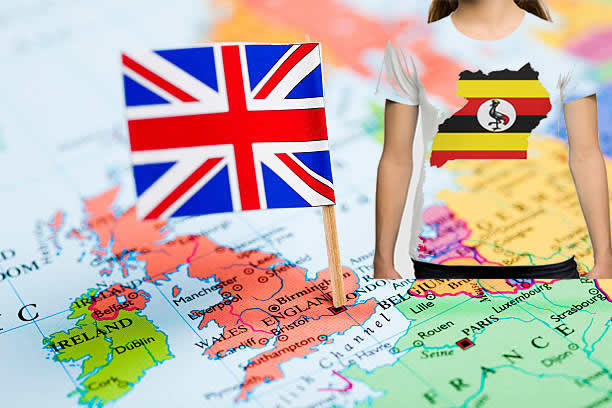
Travelling from UK to Uganda travel restrictions
Travel to Uganda is subject to entry restrictions
- If you are travelling to Uganda, you will need to provide a negative COVID-19 test certificate, issued no more than 120 hours before boarding the aircraft or crossing land borders. Foreign nationals without a valid negative test certificate will be denied entry. Infants aged three and under are exempt when accompanying parents arrive with a negative test certificate.
- Arriving passengers will be subject to temperature checks and will be screened for infectious diseases by the Port Health authorities
- New measures were announced on 29 April 2021 which bans travel to Uganda for anyone who has been in India in the previous 14 days and requires PCR testing on arrival in Uganda for travellers from certain countries, including the UK, who have not been fully vaccinated against COVID-19. The ban on travel from India was implemented on 2 May 2021. The PCR testing on arrival requirement was implemented on 8 May 2021. See Entry requirements for more information before you plan to travel.
Preparing for your return journey to the UK
If you’re returning to the UK from overseas, you will need to:
- provide your journey and contact details before you travel
- check if you need to self-isolate on your return
If your return journey to the UK transits another country, you should check whether it is subject to a travel ban or any other additional requirements. If so, contact your travel provider.
Check our advice on foreign travel during the coronavirus (COVID-19) pandemic and sign up for email alerts for this travel advice.
If you’re planning travel to Uganda, find out what you need to know about coronavirus there in the Coronavirus section .
During the COVID-19 pandemic, it is more important than ever to get travel insurance and check it provides sufficient cover. See the Foreign, Commonwealth and Development Office (FCDO) guidance on foreign travel insurance .
For information about COVID-19 vaccines, see the Coronavirus page .
On 18 and 19 November 2020 there were election-related protests in Kampala and other locations across Uganda, with incidents of violence and a number of deaths. Political rallies, protests and violent demonstrations can occur without notice throughout the country. Presidential and parliamentary elections took place on 14 January 2021. The official election period ran from 11 January to 3 February 2021, however there is the potential for election related or politically motivated incidents and tensions beyond this, particularly around the time of the Presidential inauguration, which will take place on 12 May 2021. There will be traffic restrictions in place around Kololo in Kampala from the evening of Tuesday 11 May. Staff at the British High Commission have been advised to limit their movements on 11 and 12 May 2021. There is the possibility of an internet shut down or restrictions on social media services around the time of inauguration. See Political situation
You should remain vigilant, avoid large crowds and public demonstrations and follow local media for updates. See Political situation
On 1 October 2020, Entebbe International Airport and land borders re-opened. New COVID-19 standard operating procedures (SOPs) are in place for arriving and departing passengers. See Entry requirements
UK health authorities have classified Uganda as having a risk of Zika virus transmission. For information and advice about the risks associated with Zika virus, visit the National Travel Health Network and Centre website
Petty and violent crime occurs. Take sensible precautions to protect yourself and your belongings. See Safety and Security .
Terrorists are likely to try to carry out attacks in Uganda. See Terrorism .
Avoid travel by road outside major towns at night, except between Kampala and the airport at Entebbe. See Crime .
Around 15,000 British nationals visit Uganda every year. Most visits are trouble-free.
If you’re abroad and you need emergency help from the UK government, contact the nearest British embassy, consulate or high commission .
The Overseas Business Risk service offers information and advice for British companies operating overseas on how to manage political, economic, and business security-related risks.
Related articles
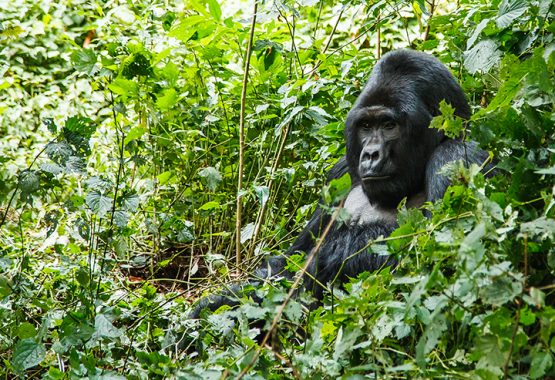
What is the best time to travel in Uganda?
Officially, Uganda’s dry seasons are from December/January through to mid March and from June through to mid-September. These dry months are the most popular with tourists, with July and August and Christmas and New Year being the peak seasons.
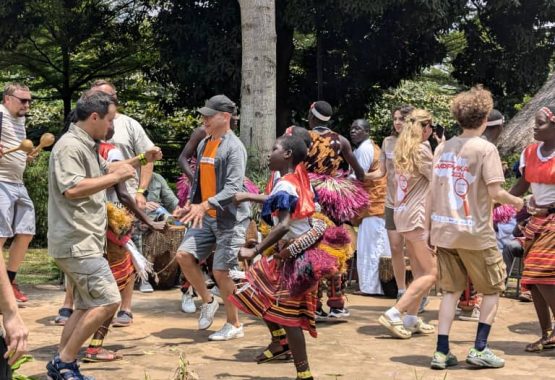
Russians visiting Rwanda and Uganda for gorilla trekking
Introduction to Gorilla Trekking in Rwanda and Uganda Imagine trekking through lush, green forests, where the air is filled with the sounds of chirping birds and rustling leaves. Suddenly, you catch a glimpse of an enormous silverback gorilla lounging in the trees. This is not […]

We now have Tigers in Uganda | UWEC Imports Tigers
According to Dr. Musinguzi, tigers, which are the largest members of the cat family, last existed in Uganda, in the 1970s. He further stated that conservation is a global noble cause whereby, even though animals such as tigers do not exist in Africa,
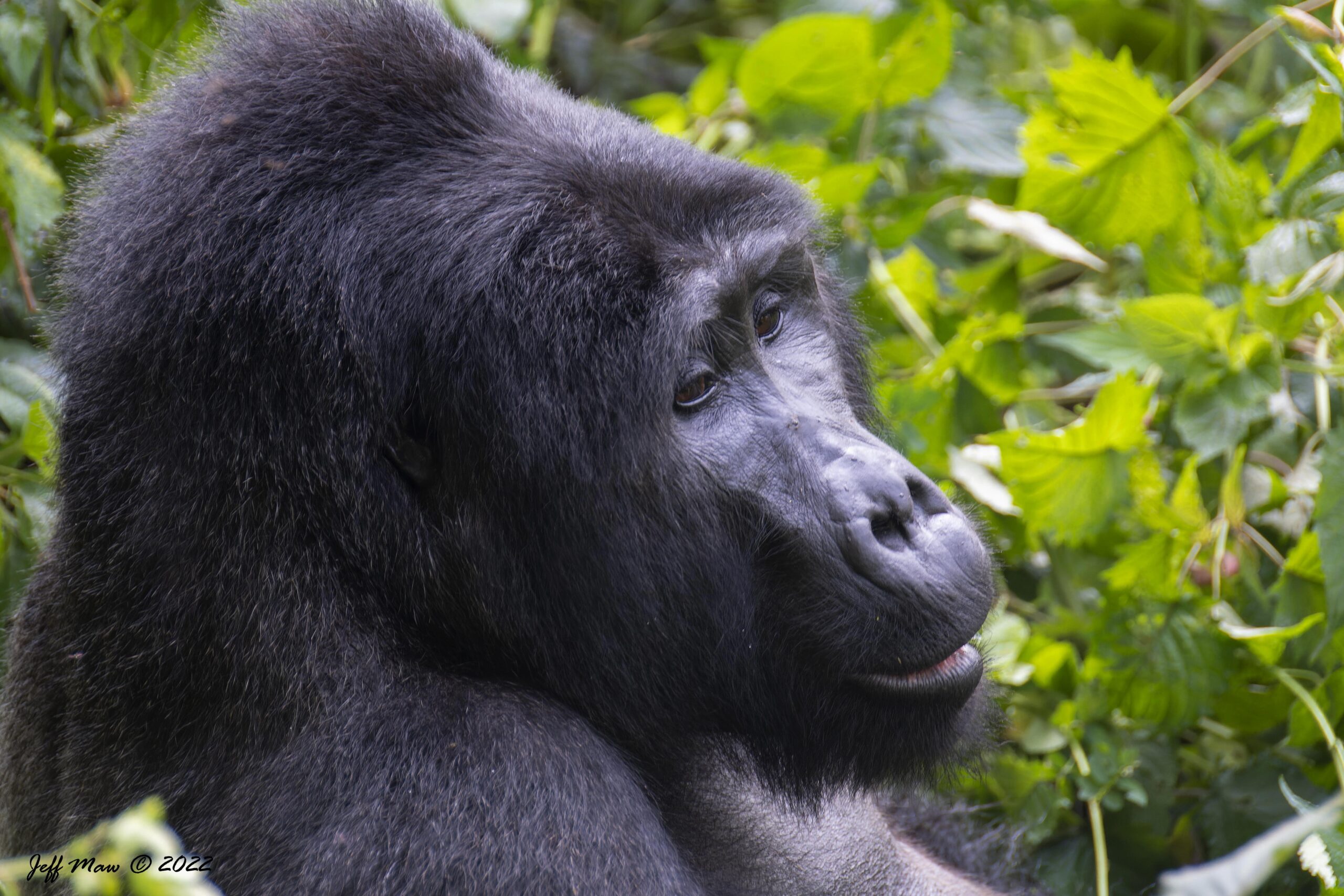
Travelling to East Africa Guidelines.
There is a host of bus services connecting all East African capitals and major cities, but with EAC-enhanced co-operation in the area of transport, East Africans can now drive private cars across borders and across the entire EAC region.
Privacy Overview
I see you want copy Ngoni Safaris Content
Ngoni Safaris Uganda
Michael t 06/june/2021, david 24/june/2021, justo nov 18, 2019, stephany aug 13, 2019, shakira dec 14, 2018, winnie dec 19, 2018, ritah jan 2, 2019, pilot may 28, 2019.
You are using an outdated browser. Upgrade your browser today or install Google Chrome Frame to better experience this site.
Uganda Traveler View
Travel health notices, vaccines and medicines, non-vaccine-preventable diseases, stay healthy and safe.
- Packing List
After Your Trip

Be aware of current health issues in Uganda. Learn how to protect yourself.
Level 2 Practice Enhanced Precautions
- Updated Global Polio August 20, 2024 Some international destinations have circulating poliovirus. Before any international travel, make sure you are up to date on your polio vaccines. Destination List: Afghanistan, Algeria, Angola, Benin, Botswana, Burkina Faso, Burundi, Cameroon, Central African Republic, Chad, Côte d'Ivoire (Ivory Coast), Democratic Republic of the Congo, Egypt, Ethiopia, Guinea, Indonesia, Kenya, Liberia, Madagascar, Mali, Mauritania, Mozambique, Niger, Nigeria, Pakistan, Republic of South Sudan, Republic of the Congo, Senegal, Sierra Leone, Somalia, Sudan, Tanzania, including Zanzibar, The Gambia, Uganda, Yemen, Zambia, Zimbabwe
- Clade I Mpox in the Democratic Republic of the Congo and Neighboring Countries August 07, 2024 There is an outbreak of clade I mpox in the Democratic Republic of the Congo (DRC). Countries sharing borders with DRC are considered at risk for spread. Destination List: Burundi, Central African Republic, Democratic Republic of the Congo, Republic of the Congo, Rwanda, Uganda
⇧ Top
Check the vaccines and medicines list and visit your doctor at least a month before your trip to get vaccines or medicines you may need. If you or your doctor need help finding a location that provides certain vaccines or medicines, visit the Find a Clinic page.
- Avoid contaminated water
Leptospirosis
How most people get sick (most common modes of transmission)
- Touching urine or other body fluids from an animal infected with leptospirosis
- Swimming or wading in urine-contaminated fresh water, or contact with urine-contaminated mud
- Drinking water or eating food contaminated with animal urine
- Avoid contaminated water and soil
- Avoid floodwater
Clinical Guidance
Schistosomiasis
- Wading, swimming, bathing, or washing in contaminated freshwater streams, rivers, ponds, lakes, or untreated pools.
Avoid bug bites
African sleeping sickness (african trypanosomiasis).
- Tsetse fly bite
- Avoid Bug Bites
African Trypanosomiasis
African Tick-Bite Fever
African Tick-bite fever
Chikungunya
- Mosquito bite
Crimean-Congo Hemorrhagic fever
- Tick bite
- Touching the body fluids of a person or animal infected with CCHF
- Mosquito bite
- An infected pregnant woman can spread it to her unborn baby
- Avoid animals
- Touching infected animals (including bats and primates) or their body fluids
- Touching body fluids (blood or sweat) from an infected person
- Touching objects contaminated with the body fluids of a person infected with Ebola or Marburg virus
- Avoid sick people
- Avoid animals and areas where they live
Ebola virus
Marburg Hemorrhagic Fever
Marburg virus
Rift Valley Fever
- Touching blood, body fluids, or tissue of infected livestock
Rift Valley fever
Airborne & droplet
- Breathing in air or accidentally eating food contaminated with the urine, droppings, or saliva of infected rodents
- Bite from an infected rodent
- Less commonly, being around someone sick with hantavirus (only occurs with Andes virus)
- Avoid rodents and areas where they live
Tuberculosis (TB)
- Breathe in TB bacteria that is in the air from an infected and contagious person coughing, speaking, or singing.
Learn actions you can take to stay healthy and safe on your trip. Vaccines cannot protect you from many diseases in Uganda, so your behaviors are important.
Eat and drink safely
Food and water standards around the world vary based on the destination. Standards may also differ within a country and risk may change depending on activity type (e.g., hiking versus business trip). You can learn more about safe food and drink choices when traveling by accessing the resources below.
- Choose Safe Food and Drinks When Traveling
- Water Treatment Options When Hiking, Camping or Traveling
- Global Water, Sanitation and Hygiene (WASH)
- Avoid Contaminated Water During Travel
You can also visit the Department of State Country Information Pages for additional information about food and water safety.
Prevent bug bites
Bugs (like mosquitoes, ticks, and fleas) can spread a number of diseases in Uganda. Many of these diseases cannot be prevented with a vaccine or medicine. You can reduce your risk by taking steps to prevent bug bites.
What can I do to prevent bug bites?
- Cover exposed skin by wearing long-sleeved shirts, long pants, and hats.
- Use an appropriate insect repellent (see below).
- Use permethrin-treated clothing and gear (such as boots, pants, socks, and tents). Do not use permethrin directly on skin.
- Stay and sleep in air-conditioned or screened rooms.
- Use a bed net if the area where you are sleeping is exposed to the outdoors.
What type of insect repellent should I use?
- FOR PROTECTION AGAINST TICKS AND MOSQUITOES: Use a repellent that contains 20% or more DEET for protection that lasts up to several hours.
- Picaridin (also known as KBR 3023, Bayrepel, and icaridin)
- Oil of lemon eucalyptus (OLE) or para-menthane-diol (PMD)
- 2-undecanone
- Always use insect repellent as directed.
What should I do if I am bitten by bugs?
- Avoid scratching bug bites, and apply hydrocortisone cream or calamine lotion to reduce the itching.
- Check your entire body for ticks after outdoor activity. Be sure to remove ticks properly.
What can I do to avoid bed bugs?
Although bed bugs do not carry disease, they are an annoyance. See our information page about avoiding bug bites for some easy tips to avoid them. For more information on bed bugs, see Bed Bugs .
For more detailed information on avoiding bug bites, see Avoid Bug Bites .
Stay safe outdoors
If your travel plans in Uganda include outdoor activities, take these steps to stay safe and healthy during your trip.
- Stay alert to changing weather conditions and adjust your plans if conditions become unsafe.
- Prepare for activities by wearing the right clothes and packing protective items, such as bug spray, sunscreen, and a basic first aid kit.
- Consider learning basic first aid and CPR before travel. Bring a travel health kit with items appropriate for your activities.
- If you are outside for many hours in heat, eat salty snacks and drink water to stay hydrated and replace salt lost through sweating.
- Protect yourself from UV radiation : use sunscreen with an SPF of at least 15, wear protective clothing, and seek shade during the hottest time of day (10 a.m.–4 p.m.).
- Be especially careful during summer months and at high elevation. Because sunlight reflects off snow, sand, and water, sun exposure may be increased during activities like skiing, swimming, and sailing.
- Very cold temperatures can be dangerous. Dress in layers and cover heads, hands, and feet properly if you are visiting a cold location.
Stay safe around water
- Swim only in designated swimming areas. Obey lifeguards and warning flags on beaches.
- Practice safe boating—follow all boating safety laws, do not drink alcohol if driving a boat, and always wear a life jacket.
- Do not dive into shallow water.
- Do not swim in freshwater in developing areas or where sanitation is poor.
- Avoid swallowing water when swimming. Untreated water can carry germs that make you sick.
- To prevent infections, wear shoes on beaches where there may be animal waste.
Schistosomiasis, a parasitic infection that can be spread in fresh water, is found in Uganda. Avoid swimming in fresh, unchlorinated water, such as lakes, ponds, or rivers.
Keep away from animals
Most animals avoid people, but they may attack if they feel threatened, are protecting their young or territory, or if they are injured or ill. Animal bites and scratches can lead to serious diseases such as rabies.
Follow these tips to protect yourself:
- Do not touch or feed any animals you do not know.
- Do not allow animals to lick open wounds, and do not get animal saliva in your eyes or mouth.
- Avoid rodents and their urine and feces.
- Traveling pets should be supervised closely and not allowed to come in contact with local animals.
- If you wake in a room with a bat, seek medical care immediately. Bat bites may be hard to see.
All animals can pose a threat, but be extra careful around dogs, bats, monkeys, sea animals such as jellyfish, and snakes. If you are bitten or scratched by an animal, immediately:
- Wash the wound with soap and clean water.
- Go to a doctor right away.
- Tell your doctor about your injury when you get back to the United States.
Consider buying medical evacuation insurance. Rabies is a deadly disease that must be treated quickly, and treatment may not be available in some countries.
Reduce your exposure to germs
Follow these tips to avoid getting sick or spreading illness to others while traveling:
- Wash your hands often, especially before eating.
- If soap and water aren’t available, clean hands with hand sanitizer (containing at least 60% alcohol).
- Don’t touch your eyes, nose, or mouth. If you need to touch your face, make sure your hands are clean.
- Cover your mouth and nose with a tissue or your sleeve (not your hands) when coughing or sneezing.
- Try to avoid contact with people who are sick.
- If you are sick, stay home or in your hotel room, unless you need medical care.
Avoid sharing body fluids
Diseases can be spread through body fluids, such as saliva, blood, vomit, and semen.
Protect yourself:
- Use latex condoms correctly.
- Do not inject drugs.
- Limit alcohol consumption. People take more risks when intoxicated.
- Do not share needles or any devices that can break the skin. That includes needles for tattoos, piercings, and acupuncture.
- If you receive medical or dental care, make sure the equipment is disinfected or sanitized.
Know how to get medical care while traveling
Plan for how you will get health care during your trip, should the need arise:
- Carry a list of local doctors and hospitals at your destination.
- Review your health insurance plan to determine what medical services it would cover during your trip. Consider purchasing travel health and medical evacuation insurance.
- Carry a card that identifies, in the local language, your blood type, chronic conditions or serious allergies, and the generic names of any medications you take.
- Some prescription drugs may be illegal in other countries. Call Uganda’s embassy to verify that all of your prescription(s) are legal to bring with you.
- Bring all the medicines (including over-the-counter medicines) you think you might need during your trip, including extra in case of travel delays. Ask your doctor to help you get prescriptions filled early if you need to.
Many foreign hospitals and clinics are accredited by the Joint Commission International. A list of accredited facilities is available at their website ( www.jointcommissioninternational.org ).
In some countries, medicine (prescription and over-the-counter) may be substandard or counterfeit. Bring the medicines you will need from the United States to avoid having to buy them at your destination.
Malaria is a risk in Uganda. Fill your malaria prescription before you leave and take enough with you for the entire length of your trip. Follow your doctor’s instructions for taking the pills; some need to be started before you leave.
Select safe transportation
Motor vehicle crashes are the #1 killer of healthy US citizens in foreign countries.
In many places cars, buses, large trucks, rickshaws, bikes, people on foot, and even animals share the same lanes of traffic, increasing the risk for crashes.
Be smart when you are traveling on foot.
- Use sidewalks and marked crosswalks.
- Pay attention to the traffic around you, especially in crowded areas.
- Remember, people on foot do not always have the right of way in other countries.
Riding/Driving
Choose a safe vehicle.
- Choose official taxis or public transportation, such as trains and buses.
- Ride only in cars that have seatbelts.
- Avoid overcrowded, overloaded, top-heavy buses and minivans.
- Avoid riding on motorcycles or motorbikes, especially motorbike taxis. (Many crashes are caused by inexperienced motorbike drivers.)
- Choose newer vehicles—they may have more safety features, such as airbags, and be more reliable.
- Choose larger vehicles, which may provide more protection in crashes.
Think about the driver.
- Do not drive after drinking alcohol or ride with someone who has been drinking.
- Consider hiring a licensed, trained driver familiar with the area.
- Arrange payment before departing.
Follow basic safety tips.
- Wear a seatbelt at all times.
- Sit in the back seat of cars and taxis.
- When on motorbikes or bicycles, always wear a helmet. (Bring a helmet from home, if needed.)
- Avoid driving at night; street lighting in certain parts of Uganda may be poor.
- Do not use a cell phone or text while driving (illegal in many countries).
- Travel during daylight hours only, especially in rural areas.
- If you choose to drive a vehicle in Uganda, learn the local traffic laws and have the proper paperwork.
- Get any driving permits and insurance you may need. Get an International Driving Permit (IDP). Carry the IDP and a US-issued driver's license at all times.
- Check with your auto insurance policy's international coverage, and get more coverage if needed. Make sure you have liability insurance.
- Avoid using local, unscheduled aircraft.
- If possible, fly on larger planes (more than 30 seats); larger airplanes are more likely to have regular safety inspections.
- Try to schedule flights during daylight hours and in good weather.
Medical Evacuation Insurance
If you are seriously injured, emergency care may not be available or may not meet US standards. Trauma care centers are uncommon outside urban areas. Having medical evacuation insurance can be helpful for these reasons.
Helpful Resources
Road Safety Overseas (Information from the US Department of State): Includes tips on driving in other countries, International Driving Permits, auto insurance, and other resources.
The Association for International Road Travel has country-specific Road Travel Reports available for most countries for a minimal fee.
Traffic flows on the left side of the road in Uganda.
- Always pay close attention to the flow of traffic, especially when crossing the street.
- LOOK RIGHT for approaching traffic.
Maintain personal security
Use the same common sense traveling overseas that you would at home, and always stay alert and aware of your surroundings.
Before you leave
- Research your destination(s), including local laws, customs, and culture.
- Monitor travel advisories and alerts and read travel tips from the US Department of State.
- Enroll in the Smart Traveler Enrollment Program (STEP) .
- Leave a copy of your itinerary, contact information, credit cards, and passport with someone at home.
- Pack as light as possible, and leave at home any item you could not replace.
While at your destination(s)
- Carry contact information for the nearest US embassy or consulate .
- Carry a photocopy of your passport and entry stamp; leave the actual passport securely in your hotel.
- Follow all local laws and social customs.
- Do not wear expensive clothing or jewelry.
- Always keep hotel doors locked, and store valuables in secure areas.
- If possible, choose hotel rooms between the 2nd and 6th floors.
Healthy Travel Packing List
Use the Healthy Travel Packing List for Uganda for a list of health-related items to consider packing for your trip. Talk to your doctor about which items are most important for you.
Why does CDC recommend packing these health-related items?
It’s best to be prepared to prevent and treat common illnesses and injuries. Some supplies and medicines may be difficult to find at your destination, may have different names, or may have different ingredients than what you normally use.
If you are not feeling well after your trip, you may need to see a doctor. If you need help finding a travel medicine specialist, see Find a Clinic . Be sure to tell your doctor about your travel, including where you went and what you did on your trip. Also tell your doctor if you were bitten or scratched by an animal while traveling.
If your doctor prescribed antimalarial medicine for your trip, keep taking the rest of your pills after you return home. If you stop taking your medicine too soon, you could still get sick.
Malaria is always a serious disease and may be a deadly illness. If you become ill with a fever either while traveling in a malaria-risk area or after you return home (for up to 1 year), you should seek immediate medical attention and should tell the doctor about your travel history.
For more information on what to do if you are sick after your trip, see Getting Sick after Travel .
Map Disclaimer - The boundaries and names shown and the designations used on maps do not imply the expression of any opinion whatsoever on the part of the Centers for Disease Control and Prevention concerning the legal status of any country, territory, city or area or of its authorities, or concerning the delimitation of its frontiers or boundaries. Approximate border lines for which there may not yet be full agreement are generally marked.
Other Destinations
If you need help finding travel information:
Message & data rates may apply. CDC Privacy Policy
File Formats Help:
- Adobe PDF file
- Microsoft PowerPoint file
- Microsoft Word file
- Microsoft Excel file
- Audio/Video file
- Apple Quicktime file
- RealPlayer file
- Zip Archive file
Snag a Last Minute Getaway
Book Your 2025 Trip With An Early Bird Discount
Uganda Travel Guide: Everything Uganda Tourists Need to Know
Explorer Chick
April 15, 2022
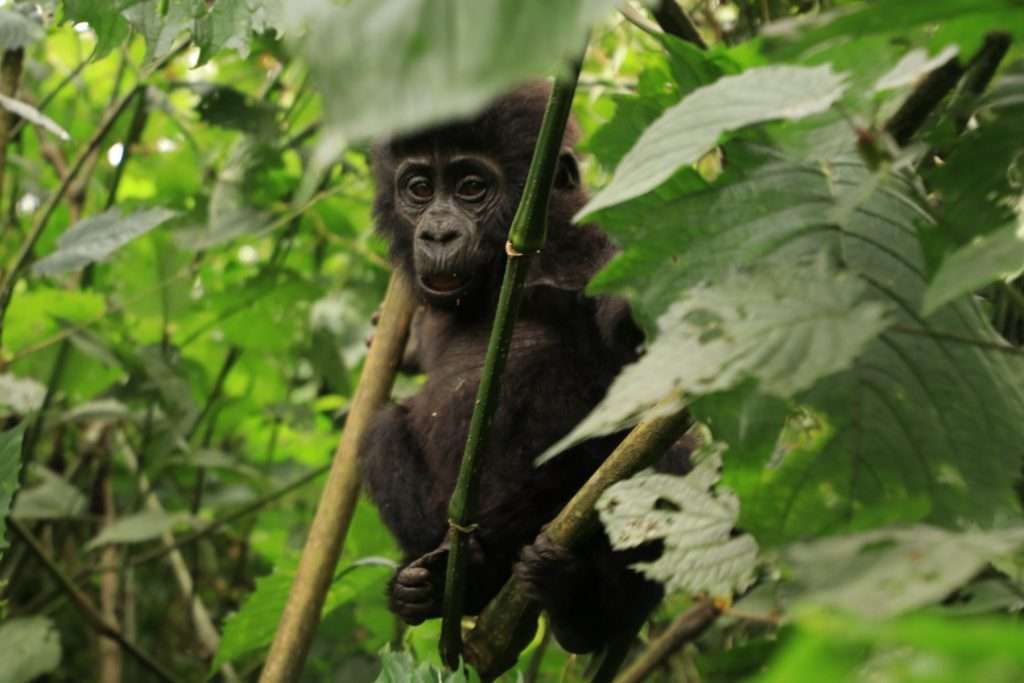
Uganda is one of the most beloved tourist destinations in Africa. It’s endowed with natural beauty and great weather all year round. It is also the perfect location to go for wildlife trekking adventures. Before travelling to Uganda, though, it’s helpful to know what to expect when it comes to languages, local laws, and culture.
Here, we’ll share what we know to be true about Uganda and hopefully convince you that you should visit soon.
The Basics of What to Expect in Uganda
First things first, get travel advice from trusted sources (hi, here at Explorer Chick!). Here are some basics of what to expect in Uganda.
- Language: The dominating languages spoken in Uganda are English and Swahili . A vast majority of the population can speak eloquent English. These two languages are the leading ones spoken among 40 other native languages. The main group of people there is Nilotic, Sudanese, Bantus, and Central Sudanese.
- Currency: The primary currency used in Uganda is the Ugandan Shilling . You get about 3500 – 700 Ugandan Shilling to one US dollar at the exchange point. Some places in the major towns also accept Euros and British Pounds.
- Credit Cards vs. Cash: While in Uganda, it would be wise always to have ready cash at all times. If you want to get the best exchange deals, avoid exchanging currency at the airport. Exchange only the amount you need and make your withdrawals at the ATM. You can get the exemption to use cash in hotels and restaurants to use Credit cards.
- Plugs: Get your G plug type ready when traveling to Uganda. It is similar to the pins found in the UK, Malaysia, Sri Lanka, and Singapore.
- Covid-19 Situation. You can get information and the latest Covid-19 updates about Uganda on TravelHealthPro and local media. Get to understand the measure locals in Uganda are taking to reduce the spread of Covid-19.
- Weather: Uganda lies on the warm tropical belt. Expect to experience temperatures ranging between 25 degrees Celsius and 29 degrees Celsius. The mountainous region around Mt Elgon is cooler. It’s the hottest from December to February, with chilly evenings. Also, it’s worth noting that the heavy rain season is between March and between September and November.
- Visa Information: It’s a requirement to have a visa to visit Uganda. You can get the East African Community (EAC) tourist visa to access neighboring Uganda for 90 days. Alternatively, you can get a visa online from the government of Uganda .
Why Should You Visit Uganda?
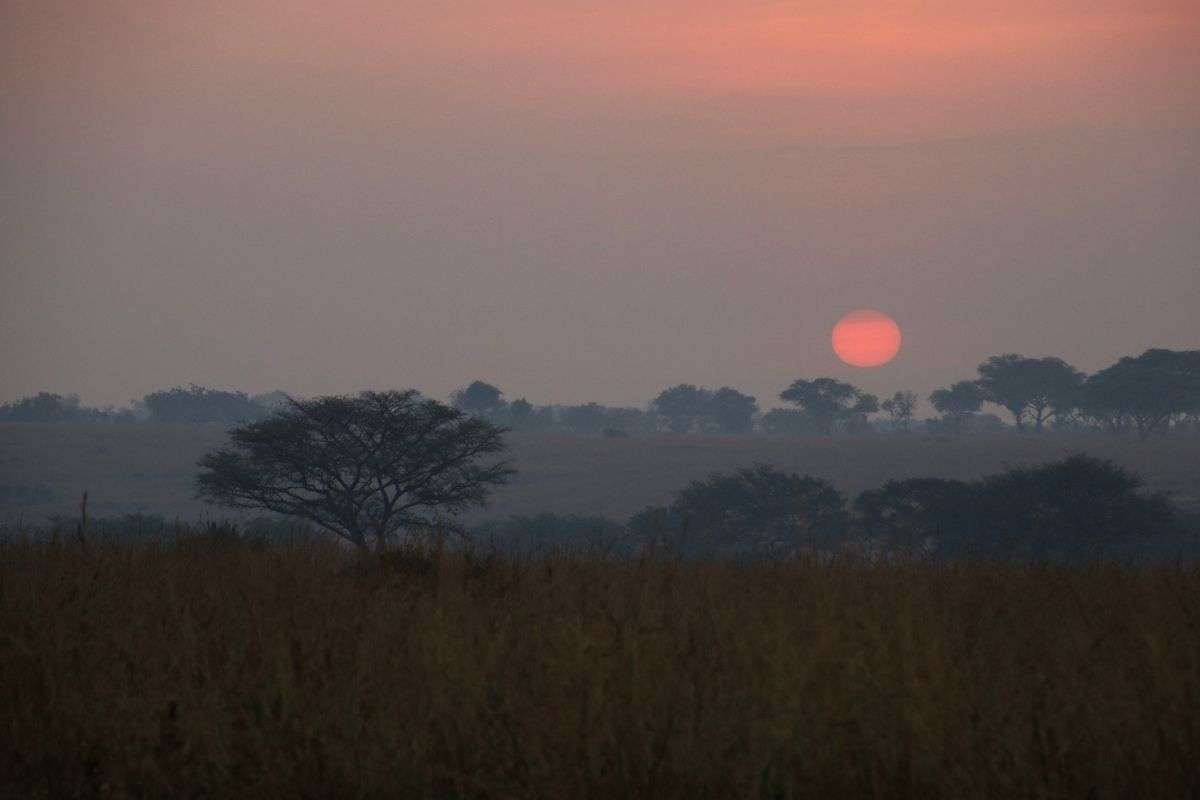
A visit to Uganda will change your soul as you get to experience the best treats from the Pearl of Africa. You can explore nature’s bearings and the rich cultural aspects of the region. There are tons of things to do in Uganda.
Nicki, the founder of Explorer Chick, specifically created a trip to Uganda because of the impact it has had on her since her first visit. From the wildlife and conservation efforts to the jaw-dropping landscapes to the highest shelf accommodations (um, have you SEEN the hot tub situation??)Uganda is one of the most remarkable locations on Earth.
And that’s exactly what we’re focusing on in this list of reasons why you should visit Uganda.
Wildlife and Gorilla Trekking
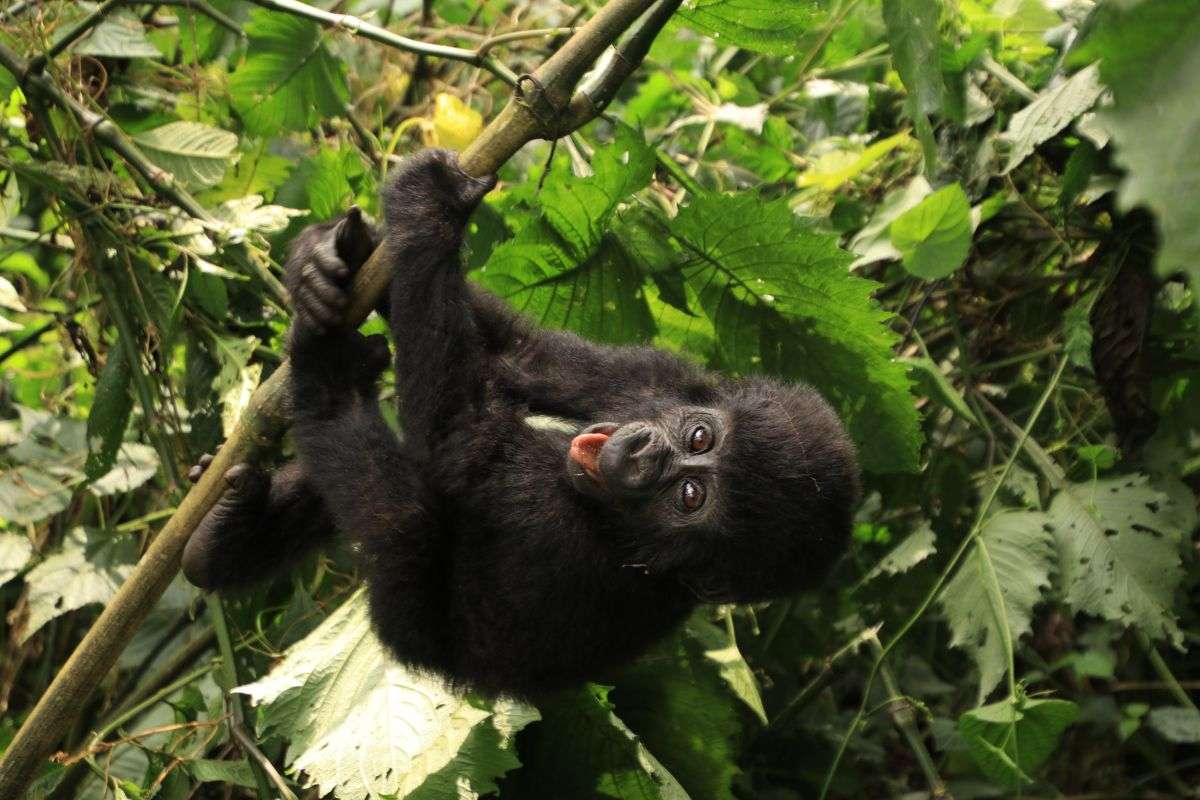
One of the most must-do things while in Uganda is interacting with wildlife and going on Gorilla trekking adventures. Going gorilla trekking is a humbling experience as you get to observe the majestic animals in what is arguably one of the most beautiful places in all of Africa.
Bwindi National Park is the primary home to Gorillas. It’s a 2.5-hour trek through the Bwindi forest, where you will likely come across the Mubare gorilla family. Consider trekking in the morning since the gorillas sleep in the evenings. Besides trekking, you can also jump into a Land cruiser and track the movements of predators courtesy of the Uganda Carnivore Program.
More interactions with wildlife await you at Kyambura Gorge, where you can’t ignore the calls of chimpanzees. Make a point of organizing a boat ride at the Kazinga channel to enjoy different other types of wildlife from hippos, exotic birds, Nile crocodiles, and elephants.
This park is especially close to Nicki’s, the OG Explorer Chick’s, heart.
“Tourism has kept Mountain Gorillas on the planet. With community profit sharing and job creation, locals are incentivized to conserve the species and their habitat.” Nicki’s vision is that Explorer Chick can help introduce people to the species that inhabit the natural world and, by doing so, support the local conservation efforts.
“When tourism collapses in conservation areas, our protected species come under threat for their short-term monetary value,” she explains.
Her recommendation: “If you want to read more about this process, the Gorillas, and Uganda, I strongly recommend reading “ The Impenetrable Forest: My Gorilla Years in Uganda ” by Thor Hanson. I only cried twice.”
Gorgeous National Parks
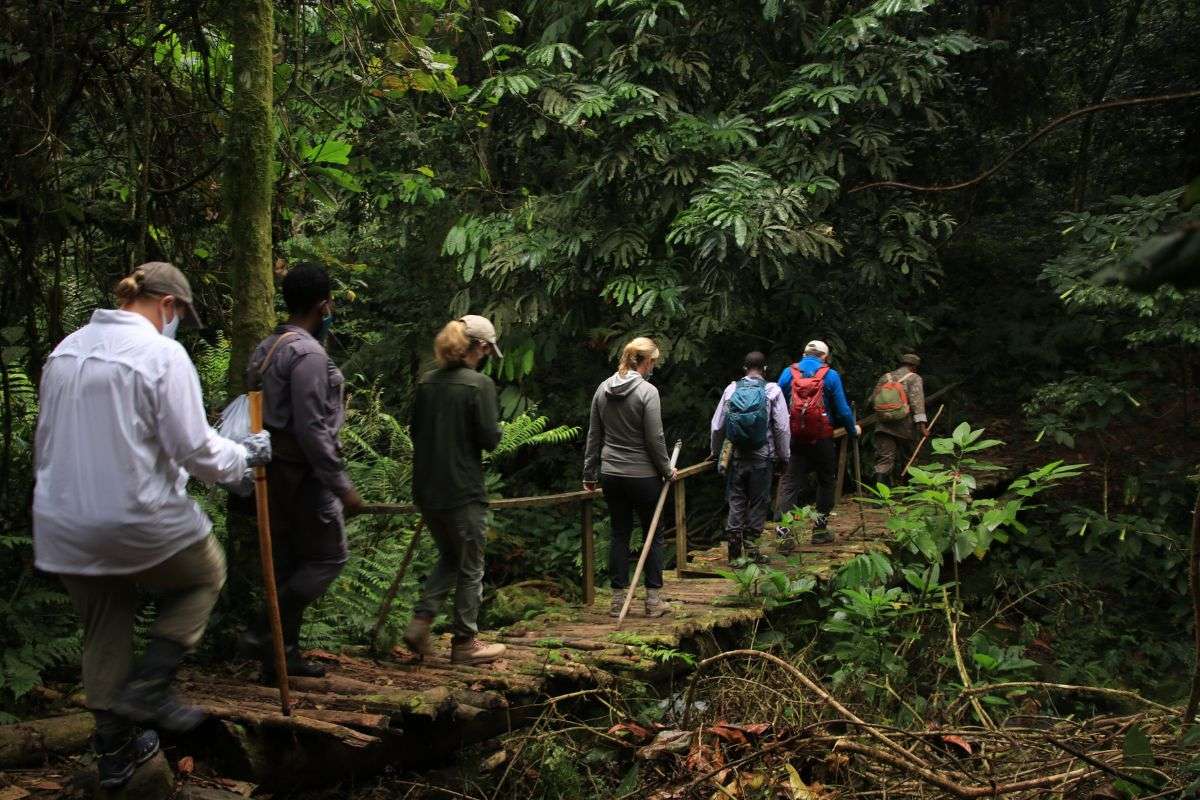
While in Uganda, ensure that you arrange flights to various wildlife reserves starting with Kidepo Valley National Park . Its location on the northernmost part of the county leaves it untouched to ensure you have an authentic African savanna experience. Your visits to these wildlife reserves will show you why animals do not belong in the zoo as you get to see elephants, giraffes, and ostriches in their natural habitats.

Another show-stopping location you must visit is the Rwenzori Mountains National Park . Your tours will lead you up the Munyambuli River at first into the most beautiful forest. A stop at the Queen Elizabeth National Park will allow you to prepare for a 7.8 miles hike into the untouched wilderness.
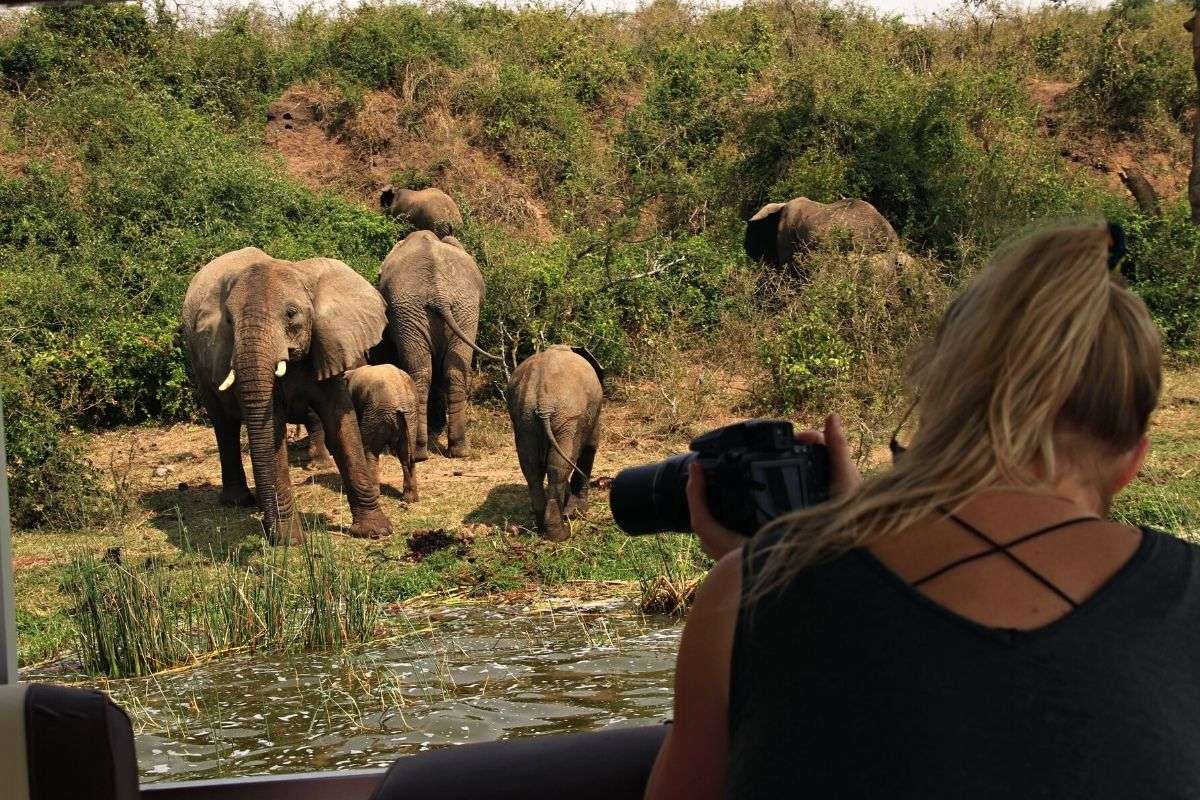
Touring the national parks should bring you no trouble since chartered flights and tour operators accompany you in the wild. Exploring the gorgeous wild in Uganda is an experience that forever remains stamped in your memories.
Show-Stopping Accommodation

You never have to worry about getting accommodation in Uganda. There are luxurious hotels all around Uganda. For instance, you can find accommodation at a luxury safari lodge in Kidepo Valley National Park and hire cottages. Entebbe City also has numerous alternatives for housing with all the essential facilities you will need to create an awesome experience for you.
Is Uganda Safe for Tourists ?
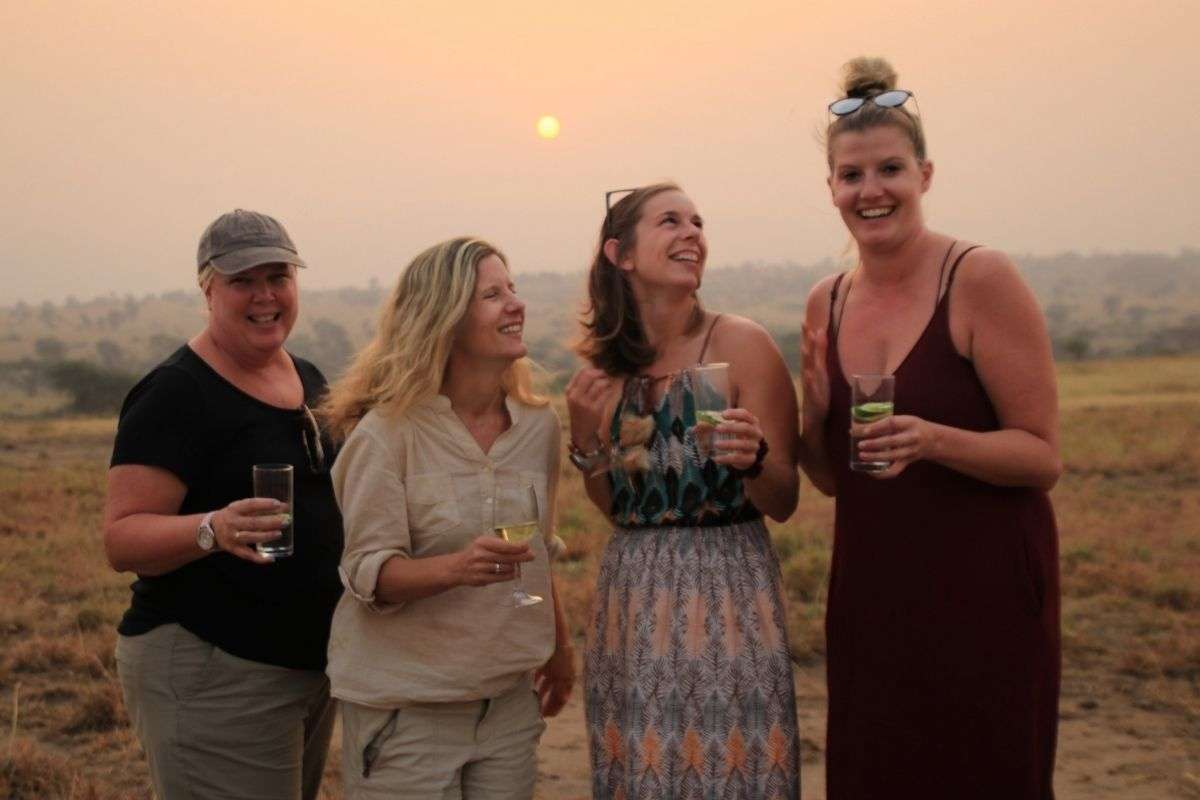
Uganda is one of the safest tourist destinations in Africa . However, there are a few vices such as drive-by theft in cities like Kampala, like in any other country. It’s essential to stay alert and spot potential instances of petty crime. There have been isolated cases of serious crimes like recent terrorist activities and violent political demonstrations.
Since it’s your first time visiting the country, it’s a good idea to make personal security arrangements, especially when going in public. Security is also necessary when gorilla trekking since the country is close to the Democratic Republic of Congo. Travel insurance is also an essential tool to get for your safety.
Where to get more information:
- Travel State Advisory for Uganda
- CDC Advisory for Uganda
While there are certainly instances of heightened caution when traveling to Uganda, the reality is that most foreign travelers pass through the country peacefully. This is especially the case when traveling in guided groups, like our trekking and safari trip .
The Best Time to Visit Uganda
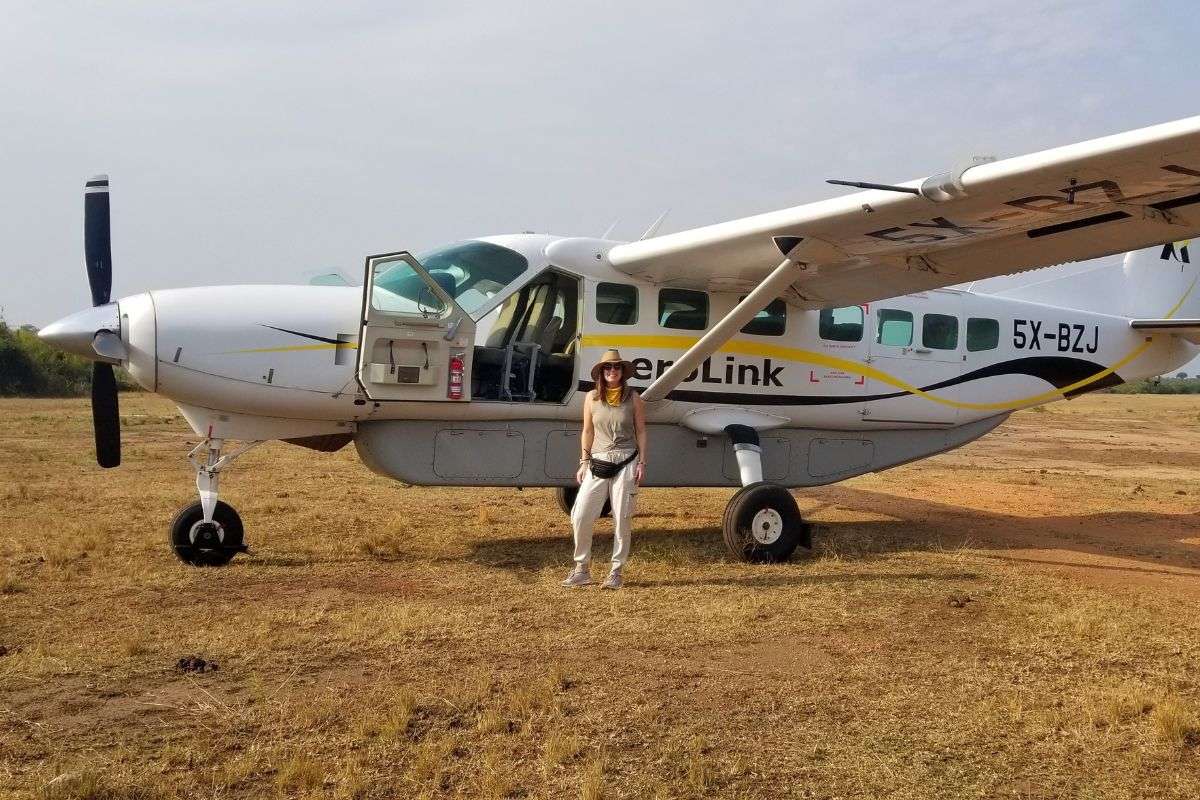
Consider visiting Uganda during the dry season between January and February and June and August . Those are the hottest months featuring hot days and chilly evenings. Also, it would be best to schedule your trip following Uganda’s rainfall pattern. Expect heavy rainfall during the rainy seasons between March and May and between September and November .
Heavy rainfall may make road travel difficult BUT you are also likely to spot various types of game in those months (that’s why our trip is scheduled in November).
Travel to Uganda with Explorer Chick!
Looking for the most engaging group of like-minded individuals to go on an adventure with? Explorer Chick can help you organize a trip to Uganda. Let us know if you would like to join our eleven people -ten-day expedition to Uganda. Take advantage of the coming warm months and us for a once-in-a-lifetime chance to make lasting memories.
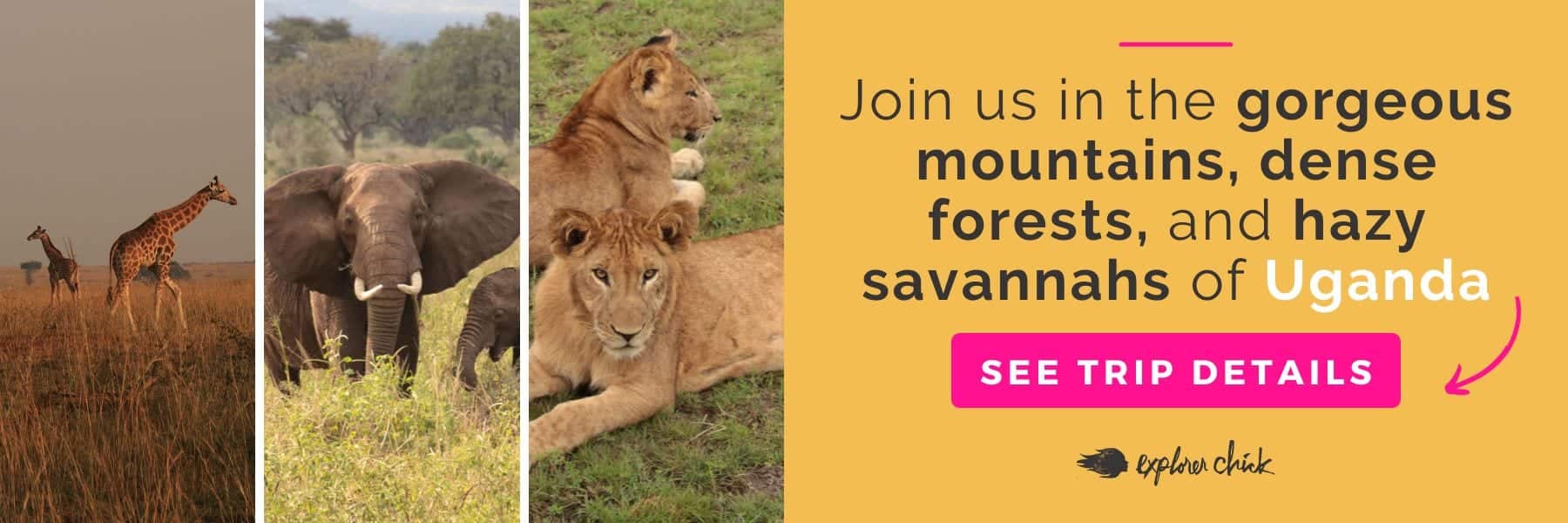
Related Posts

After a long day of exploring, swimming, and eating delicious camp food, nothing beats campfire games on your camping trip.
Backpacking, Camping, Entertainment, Inspiration
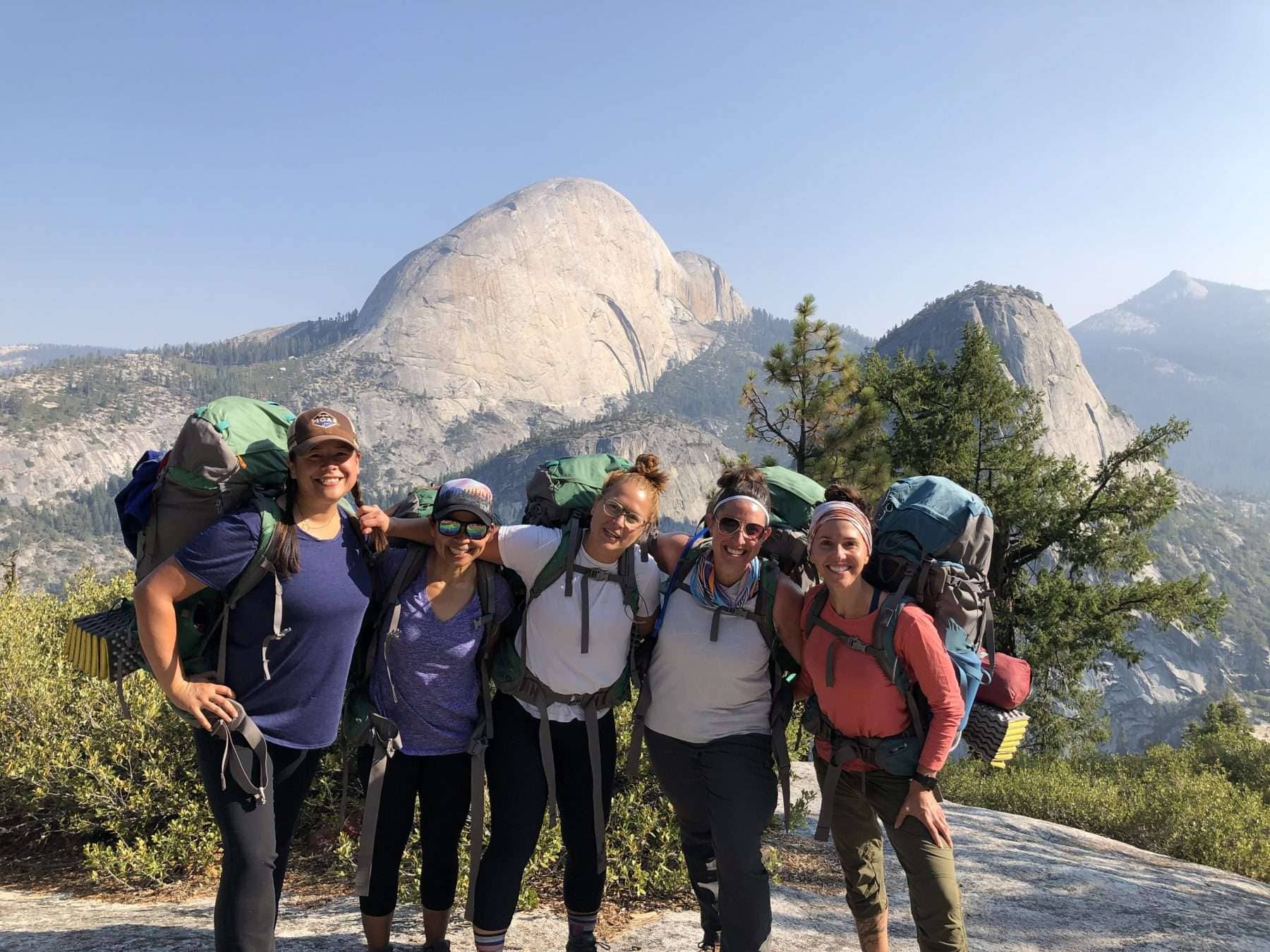
Hiking, National Parks, United States, Yellowstone, Yosemite National Park, Zion

Croatia, Europe, Iceland, Italy, Norway, Scotland, Slovenia

Change location
- Call us today until 6pm
- 01993 838 925 01993 838 575 or
- REQUEST A QUOTE
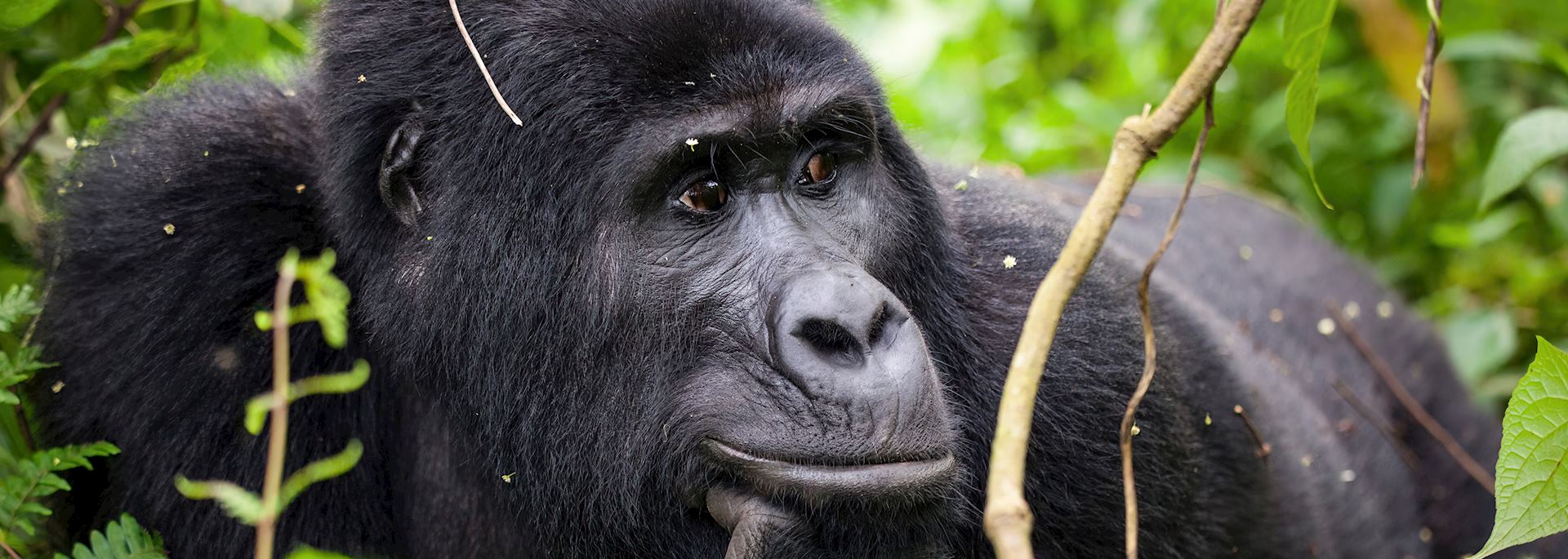
Tailor-made Uganda holidays shaped around your passions
Uganda is a welcome splash of green in a predominantly arid continent. Its dense forests give shelter to some of the last remaining mountain gorillas on Earth. People travel from far and wide to spend an hour in their presence, watching them graze, groom, sleep and play. Our safari specialists, having experienced the country beyond its prized wildlife attraction, will arrange your gorilla encounter and recommend how to spend your holiday in Uganda before or after.
We can arrange a safari in Queen Elizabeth National Park, giving you a chance to see the Big Five, including tree-climbing lion. On boat trips along the Ishasha River, you can look for water-dwelling birdlife, hippo pods and elephant herds lining the banks. Or, trek with a guide through Kibale Forest National Park for a chance to see its 13 species of primate, including chimpanzees, red colobus and L’Hoest’s monkeys, and grey-cheeked mangabeys.
- Make an enquiry
- Request a brochure
Suggested tours for Uganda
These tours give you a starting point for what your holiday to Uganda could entail. Treat them as inspiration, as each trip is created uniquely for you.

Source of the Nile safari
8 days from £4,550pp
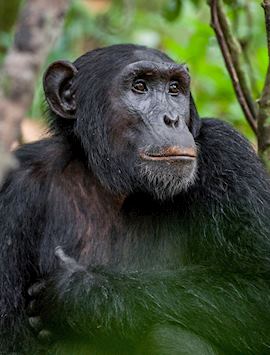
Uganda primate explorer
10 days from £8,950pp

Highlights of Uganda — anniversary itinerary
14 days from £11,410pp

Gorilla & Zanzibar adventure
14 days from £7,215pp
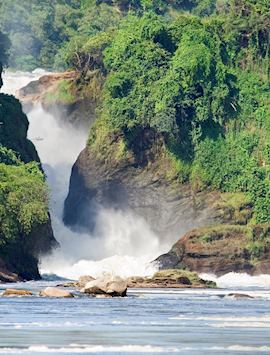
Waterfalls & wildlife: gorillas & Murchison Falls
16 days from £11,350pp
Suggested activities for Uganda
Whatever your interests, our specialists will build activities into your trip that connect to how you want to experience Uganda.

Gorilla Tracking
Tracking mountain gorilla is one of Africa's most superb wildlife experiences. It is difficult to describe the exhilaration attached to first setting eyes on a wild mountain gorilla.
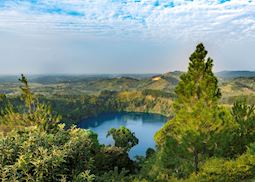
Exploring the Crater Lakes Region
This area is characterised by rolling hills, vanilla plantations, pretty forests and of course the Crater Lakes. For some of the Crater Lakes, the views are actually best from the viewpoints, accessed by roads.

Chimpanzee Tracking
You enter the forest and following signs and chimp calls your guide leads you to the chimpanzees. Chimpanzee sightings are not guaranteed, however the odds of encountering them have greatly increased in recent years, now standing at 90% or over.
More choice for your safari
- Inspiration across all our African destinations
- Trip suggestions based on your interests
- Advice on where to safari, when
- Meet our team of safari experts
Best time to visit
Our specialists advise on the best months to visit Uganda, including information about climate, events and festivals.
Request our brochure
Covering all seven continents, The World Your Way shows you how you can see the world with us. It features trip ideas from our specialists alongside hand-picked stays and experiences, and introduces our approach to creating meaningful travel experiences.

Useful information for planning your holiday in Uganda
English is the official language of Uganda and taught in all schools. However, most Ugandans speak English as a second language. There are more than 33 local languages spoken across the country, but almost everybody you’ll meet will be able to speak some English.
The currency in Uganda is the Ugandan shilling (Ush or UGX). US dollars are also widely accepted. There are very few ATMs in Uganda and although credit cards are accepted at some of the major hotels, a 5-10% surcharge will usually be added. We recommend that you don’t rely on credit cards other than as a back-up.
Hotels will accept payment for food, drinks, and tips in dollars or shillings. You should only need shillings for occasional drinks in roadside stops, lunches in local restaurants, and souvenirs, although most do accept US dollars in low denominations.
In Uganda you should try luwombo, a local stew of beef, chicken, or fish, mixed with vegetables and steamed in a plantain leaf. Stews are served with one of four staples: rice, chapati, ugali (a stiff maize porridge), or matoke (a mash of steamed green bananas). You’ll also find many dishes cooked with a groundnut sauce.
Camps, hotels, and lodges generally serve an international menu.
For the latest travel advice for Uganda, including entry requirements, health information, and the safety and security situation, please refer to the Foreign, Commonwealth & Development Office website .
In Uganda you can hike through dense forest to track mountain gorillas, see elephant, buffalo, lion, and leopard on safari, or watch the Nile force its way through a narrow gorge at Murchinson Falls. Most visitors come to Uganda to see the world’s last remaining mountain gorillas, and the challenging hike through the mountains on the trail of these great apes is a highlight of a trip. However, Uganda also offers rewarding safaris by 4x4, boat, and on foot in its national parks and wildlife reserves and you can expect to see rare tree-climbing lion, hippo, elephant, and a wide variety of primates.
In Uganda you can stay in small lodges and tented safari camps, or urban guesthouses and hotels. The choice of places to stay here isn’t as varied as in some other destinations, and in some places can be quite limited, but our specialists have chosen a variety of comfortable options with good standards of food and service.
You could stay in luxurious stone cottages while tracking gorillas, thatched cottages overlooking the grassy plains of Queen Elizabeth National Park, or in safari lodges in Murchison Falls National Park. For more ideas, browse our collection of places to stay in Uganda to start planning your trip.
Most visitors to Uganda go to Bwindi Impenetrable Forest, Queen Elizabeth National Park, and Murchinson Falls National Park.
One of the most biologically diverse forests in Africa, Bwindi Impenetrable Forest is home to more than half the world's population of mountain gorillas, and tracking the troops through the dense forest is a tough but rewarding adventure. By contrast, the wide savannah plains of Queen Elizabeth National Park are home to lion, hippo, buffalo, hyena, and crocodiles, while Murchinson Falls National Park offers sightings of a wide variety of wildlife where the Nile surges through a cleft in the Rift Valley escarpment.
Although mountain gorillas are the main draw in Uganda, you’ll also get the chance to see most of the Big Five, including lion, elephant, buffalo, and leopard. Rare tree-climbing lion can also be seen, and on boat trips along the Ishasha River, hippo wallow in the water and elephant line the banks. Kibale Forest National Park is home to 13 species of primate, including chimpanzees, red colobus and L’Hoest’s monkeys, and grey-cheeked mangabeys, while the birdlife at Murchinson Falls includes over 460 species.
It takes around 12 hours to fly from the UK to Uganda.
The time zone in Uganda is UTC+3 hours. Daylight Savings Time is not observed.
The best way of getting around southern Uganda is by road as the distances are relatively small and the scenery a highlight. For travel in northern Uganda and for visits to Murchison Falls, we recommend taking a light aircraft, particularly during the wet seasons.
British citizens need a visa for travel to Uganda. You can apply for an eVisa up to 60 days in advance on the Electronic Visa Application System website. Visas are valid for 90 days from the issue date.
Your doctor can provide you with vaccine advice for Uganda, but you should also ensure you’re up to date with the recommended vaccinations for your home country. You can also check the suggested vaccinations on the Travel Health Pro website .
If you’re arriving in Uganda from a country deemed to be at risk of yellow fever, you may be asked for proof of vaccination against the disease.
Malaria is a risk throughout Uganda. Please see your doctor for advice about which antimalarial medication you should take.
You can reduce your risk of contracting malaria by avoiding being bitten by mosquitoes. Wear long, loose clothing, use insect repellent, and use mosquito nets where provided.
Your passport should be valid for six months beyond your return date from Uganda and have two consecutive blank pages.
You must be 15 years or older to track gorillas in Uganda. Tracking the troops requires hiking through dense forest on steep mountainsides and is not suitable for children under 15.
Gorilla tracking in Uganda begins early in the morning when trackers scout the forest for clues to the gorillas’ location. Your guide will then take you onto the mountain paths in the direction of where the troop was last seen. Depending on where the gorillas are located, the hike can take anywhere from half an hour to several hours with your guide pointing out evidence of gorilla activity as you go.
As you approach the gorillas’ location you may hear grunts or grumbles, or see movement in the trees ahead, but nothing quite prepares you for your first sight of the troop, sitting on the ground or climbing among the trees. Their facial gestures and human-like hands are so similar to our own that just being in their presence and knowing how threatened they are feels like an enormous privilege.
You’ll get to spend an hour observing the gorillas as they munch on leaves, strip bark, groom each other, or cuddle infants. Visits are kept short, and you’ll need to keep a certain distance away to avoid causing the apes distress and to prevent disease transmission.
Sitting in a hushed group observing the gorillas, you’ll be close enough to take photographs, witness the charismatic interactions between troop members, and discern the intelligence, delight, or concern on their faces. Infants cling to mother’s backs, silverbacks lord over the scene, and others chew on bamboo shoots as if unaware of the human presence. For most visitors, the hour with these gentle giants leaves them smitten and very aware of the extraordinary connection we have with these apes and the fragility of the ecosystems that support them.
Wear long trousers, good walking boots, and gloves when tracking gorillas in Uganda. The forest is dense here and trousers will protect you from scratches and insect bites, while a pair of gloves are handy to help steady yourself on branches along the slippery mud trails. A pair of walking poles can also be helpful as you might encounter steep ascents and descents on the mountain slopes.
Uganda in pictures
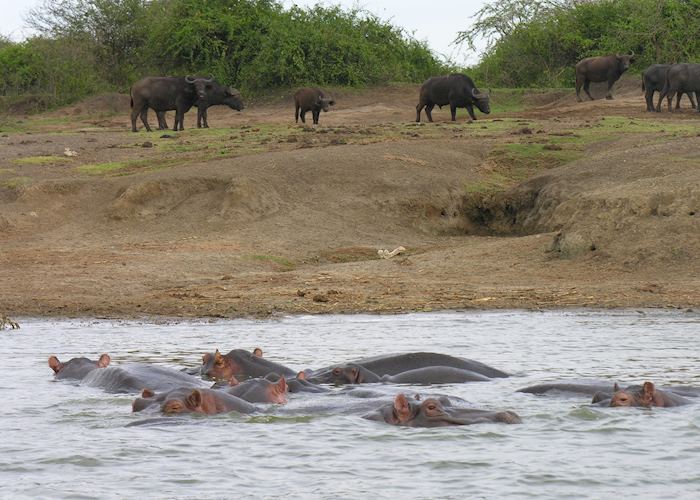
Our expert guides to travelling in Uganda
Written by our specialists from the viewpoint of their own travels, these guides will help you decide on the shape of your own trip to Uganda. Aiming to inspire and inform, we share our recommendations for how to appreciate Uganda at its best.

My travels in Uganda, 2018
Getting close to buffalo, elephant and birdlife on boat trips, watching cave-dwelling Egyptian fruit bats, and getting to know the traditions of rural tribes — a trip to Uganda can take you beyond gorilla tracking. Safari specialist Mark shares footage from his latest visit.

Gorilla tracking: Rwanda or Uganda?
Tracking mountain gorilla in either Uganda or Rwanda is one of Africa's most memorable wildlife encounters. There are pros and cons to each country, but in each one, you will have an experience you will never forget.
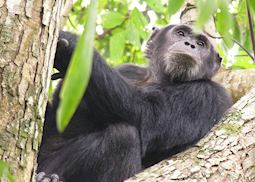
Chimpanzee trekking holidays in Africa
Africa's most famous primates are its gorillas but there are places which reverberate to the hoots and shrieks of their closest relatives, chimpanzees. Discover more about Audley tailor-made trips to see wild chimpanzees.
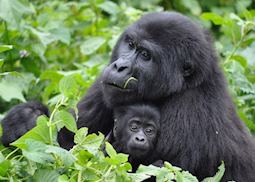
What to do in Uganda: our highlights guide
Uganda is famed for its mountain gorillas, and tracking them through the forest with a guide is one of the world’s greatest wildlife experiences. Africa specialist Toby describes how to encounter Uganda’s gorillas and more of its wildlife, from chimpanzees to tree-climbing lion.
10 min read
Other popular destinations
Still looking for ideas? If Uganda has captured your interest, we think you might also like these destinations.
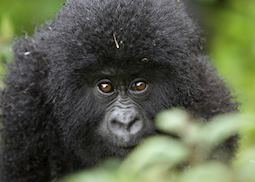
South Africa
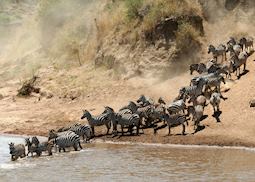

COMMENTS
Uganda travel advice
Entry requirements - Uganda travel advice
FCDO travel advice for Uganda. Includes safety and security, insurance, entry requirements and legal differences.
Navigating Uganda's Red Tape: Entry visa requirements like where to get it, passport validity, vaccinations, customs, and travel restrictions. Updated July 24, 2023 Uganda's entry visa requirements have not changed much in the last decade, but a few changes like the application process have come up to control pandemics and make it easier ...
If you are visiting this country for longer than 4 weeks, you may be advised to have a booster dose of a polio-containing vaccine if you have not had one in the past 12 months. You should carry proof of having had this vaccination. Please speak to a travel health professional to discuss.
Restaurants in Uganda are open. Bars in Uganda are . Find continuously updated travel restrictions for Uganda such as border, vaccination, COVID-19 testing, and quarantine requirements.
Single adult booster recommended. spreads through infected mosquitoes. Travellers should also take steps to avoid mosquito bites and take antimalarials. , two other mosquito-borne diseases are also present in the region. in Uganda. All travellers over the age of nine months must be vaccinated for entry. to learn more.
Uganda Level 3 - Reconsider Travel C T O. Reissued with updates to terrorism information. Reconsider travel to Uganda due to crime, terrorism, and anti-LGBTQI+ legislation. Some areas have increased risk. Read the entire Travel Advisory. Country summary: There remains a threat of terrorist attacks in Uganda and throughout the region. Numerous ...
Travel to Uganda from the UK is an exciting adventure that offers a blend of stunning natural landscapes, rich cultural experiences, and remarkable wildlife encounters. Whether you're planning a safari in one of Uganda's national parks, exploring its vibrant cities, or embarking on a volunteer mission, it's essential to be well-prepared. ...
A helpful Uganda travel tip is to bring powerful powerbanks to charge your devices when needed and bring extra batteries for cameras, etc. The electricity plugs in Uganda are similar to the ones in the UK. So make sure you bring a travel adapter with you when visiting Uganda. For more info on what to pack for a Uganda trip keep reaading.
FCDO travel advice for Uganda. Includes safety and security, insurance, entry requirements and legal differences. Services and information. Benefits. Births, death, marriages and care. Business ...
Uganda Level 3 - Reconsider Travel C T O. Reissued with updates to terrorism information. Reconsider travel to Uganda due to crime, terrorism, and anti-LGBTQI+ legislation. Some areas have increased risk. Read the entire Travel Advisory. Country summary: There remains a threat of terrorist attacks in Uganda and throughout the region. Numerous ...
Plugs: Uganda uses the plug type is G, which is the same as you'd find in the UK, Ireland, Singapore, Malaysia, Malta, Bahrain, and Sri Lanka. Safety: One of Africa's safest countries, the biggest thing for the average traveler to avoid is drive-by theft. In Kampala and other high traffic areas, you will see thieves drive by on a motorbike ...
Travel to Uganda is subject to entry restrictionsIf you are travelling to Uganda, you will need to provide a negative COVID-19 test certificate, issued no more than 120 hours before boarding the aircraft or crossing land borders. Foreign nationals without a valid negative test certificate will be denied entry. Infants aged three and under are exempt when accompanying parents arrive with a ...
Uganda - Traveler view | Travelers' Health
It is similar to the pins found in the UK, Malaysia, Sri Lanka, and Singapore. Covid-19 Situation. You can get information and the latest Covid-19 updates about Uganda on TravelHealthPro and local media. Get to understand the measure locals in Uganda are taking to reduce the spread of Covid-19. Weather: Uganda lies on the warm tropical belt ...
You can drive in Uganda with a UK driving licence for up to 3 months. For a longer period, you will need a Ugandan driving licence or a 1949 international driving permit. Travelling by road can be ...
Facts about Uganda. One of the most popular snacks in Uganda is a plate of pan fried Nsenene grasshoppers. Uganda is one of the youngest nations in the world with around half of the population being under 14. When using the bathroom in Uganda, people excuse themselves by saying "I need to make a short call". .
Offering more than just dates and names, they strive to offer real insight into their country. FCDO Travel Aware Partner. 24/7 emergency UK support while abroad. Established in 1996. Start planning your Uganda holiday in 2024 or 2025 with an Audley specialist, who'll design your trip using first-hand knowledge.
FCDO has guidance on staying safe and what to do if you need help or support abroad, including: finding lawyers and funeral directors in Uganda. dealing with a death in Uganda. being arrested in ...
Prepare for your Uganda safari tour with our top travel tips that cover everything from vaccinations to voltage, food to tipping & more. (UK) tel:020-7371-1113
Cheap Flights to Uganda from £425 Return
Travel to eastern Uganda is largely trouble-free, but during heavy rains there is a risk of landslides, particularly in Bulucheke sub-county in Bududa District near Mount Elgon National Park, a ...